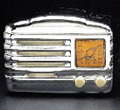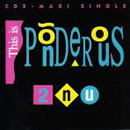 |
|
There’s not much to say about the Seattle band 2Nu other than that you don’t see many spoken word albums set to music. Ponderous is their best known song, describing a dream set to horn sections and squeaking shoes. When you hear it this will make sense, somehow. |
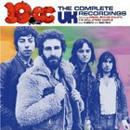 |
|
10cc didn’t have many hits but hung in there a while—they had a comeback with Cry in 1985. There were too many bands making easy-listening schmaltz in the late 70’s, but 10cc were very inventive with their use of studio techniques. I’m Not in Love is a lush, atmospheric ballad with lots of multi-layered vocals and slightly sarcastic lyrics. |
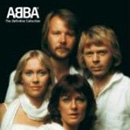 |
|
Around 1980 the ABBA backlash started and they were uncool for years–the sort of music your (yech) parents listen to. ABBA tried to go for the youth market, but I think they’re an older person’s band. Looking back, the songs are very well-crafted and reflected high studio standards for the time. Cassandra is from a late 1982 album. By this time the ABBA hating had begun, and sometimes bands get very experimental when they know the end is coming. It’s one band I wish would reunite, but they’re getting older. |
 |
|
Yeah, cue the Windows ‘95 and Friends. Ace of Base has dated terribly, and even then was kinda the 90’s ABBA (no wonder they follow them alphabetically). But some of their later work got trippier and more proto-electronica. "Happy nation" has their stereotypical octave-arpeggio horse-trot keyboard sound, but has an interesting atmospheric feel. Give it a chance. |
 |
|
One of my recent additions, when I first heard England’s Adele I assumed it was some 60’s Motown song that had slipped past me; her 2011 Rolling in the Deep is a breathy, soulful piece, perhaps a little like Amy Winehouse without the self-destructiveness. The chorus really soars. |
 |
|
It’s hard to relate now how very different A-Ha was in 1984, with their squeaky synths, Swedish-accented vocals, and charcoal-animation video. I used to mock the high-pitched chorus on this song, but I’ve always had a soft spot for these guys, and was pleasantly shocked to see Take on Me hold up as an unplugged, acoustic version. In this age of cynical, narcissistic, throwaway pop the simple innocence of this song is wonderful. |
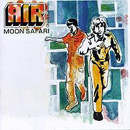 |
|
Air is a French electronica band. For some reason no one does electronica like the Europeans, and this is a cool "chill" track with a slightly 70’s feel to it. Probably the effect is best with certain, uh, substances, but lacking that, watch the surreal and dreamy amateur video someone made for the song on YouTube by setting it to a 1906 film of San Francisco rather than the official 1998 video. |
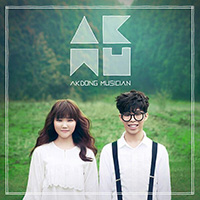 |
|
You’re not going to see much K-Pop here, because most of it is plasticy, manufactured crap. But if a Korean band does record something interesting, I feel I should hear it out. This is a quirky, joyful song, and while I don’t understand the lyrics (other than "diinosaaur!") it has a great vibe to it. Akmu is a brother and sister duo, and they’re really young, between 20 and 18; they’re now on hiatus as the brother does military service.
|
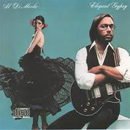 |
|
Al Dimeola played with Chick Corea’s Return to Forever, listed later here, but also did solo albums including the piece here from Elegant Gypsy (1977). Though he’s pictured with an electric, the pieces I know of are intricate Latin guitar instrumentals. You might be expecting Gypsy-King-ish ballads, but it’s rhythmic jazz with some blindingly fast runs. |
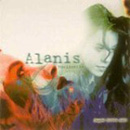 |
|
I’m not a very patriotic Canadian, but I do think we redeem ourselves with beer and with music; both are world-class. Alanis did some dreadful teenybopper pop in the mid-80’s and then redeemed herself with Jagged Little Pill in ‘96. This song is from Woodstock in ‘99. An educated listener’s musician, Alanis is good at quirky melodies and thoughtful lyrics (even if Ironic isn’t ironic. A private joke?) |
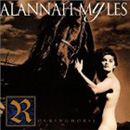 |
|
Alannah Myles, another Ontario musician, was big in Canada in the early 90’s and I saw her on New Year’s Eve in ‘90 in Edmonton. On her first album she tried maybe a teensy too hard with the I’m-such-a-rebel rocker bit, and in later albums the songs seem to grow up and become deeper, such as this one. Black Velvet is also worth looking up on Youtube.
|
 |
|
Tomasco Albinoni (1671-1751) was an Italian opera composer who was well-off enough to write independently without a church posting. Although less well-known now, he influenced followers such as Bach. I like this piece for its pipe organ line and rich melody. Sometimes the baroque writers have more romantic music than the romanticists. |
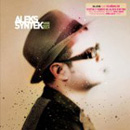 |
|
Roughly, Bless your heart!, this song was popular when I lived in Mexico in 2002. Syntek is good at layered harmonies and the song feels ‘warm’ without being too sentimental or plodding. There’s a hint of Latino rhythms without sounding like 80’s disco. The comic-book rock video for the song is also very clever. Mexican pop is underrated. |
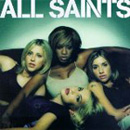 |
|
All Saints was a short-lived British band in the late 90’s. This song has a strong Motown girl-band sound to it and I at first thought it was a Supremes cover or something similar. Again, the vocal harmonies and the lack of overproduction make it a really intimate song. |
 |
|
Looking at the Wikipedia entry for the band is a morbid joke, as this Georgia band’s members seemed to keep dying in accidents or leaving. Pioneers of 70’s southern rock, there’s a good mix of blues, rock, and a hint of country on this song without being too twangy. Like a lot of their pieces, it paints an image. Ramblin’ Man (1973) is another party tune with a classic jazzy solo. |
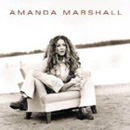 |
|
Maybe you learn as much about me as you do about the music by seeing my choices on this page. I love Amanda Marshall because she brings back happy memories for me of the time (mid-late 90’s). For a young performer her first album was a masterpiece. Dark Horse is one of the most romantic songs I know, and the production sparkles. Her videos were awful as they are simply her posing, but these songs don’t need them to create vivid images. |
 |
|
Again, some of my choices are purely arbitrary—I remember listening to America on AM radio on a summer’s night when I was little. They have a Beatlesque sound and were in fact produced by George Martin for a while. Some of their songs are sadder, such as A Horse with No Name, but most people know the easygoing Sister Golden Hair. Not really sure what Tin Man (1974) with its Arthurian references is about. |
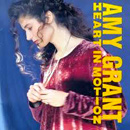 |
|
Amy Grant started out as a Christian musican with the predictable campfire-gospel pieces before becoming more and more sophisticated and poppier. I remember the usual joyless types decrying Grant’s Heart in Motion (1991) as she decided to record an album for Christians but without religious references in it. You decide; it does have that early 90’s keyboard sound but it’s tuneful stuff. Plus I saw her live in ‘85 and she rocked a lot more than I expected her to. |
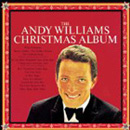 |
|
Andy Williams? I never promised you they would all be rock songs; there will be some metal, promise. For now, cue the bubble machine. It’s the sort of old-school 60’s music I associate with Peter Sellers movies where an orchestra plays and someone falls in a pool. Can’t Take My Eyes Off of You is also a really well-crafted song that’s not easy to sing karaoke to. |
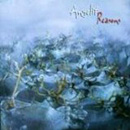 |
|
Angelit is a late 90’s folk-electronica Finnish band, because, goodness knows, we need more of them. Some songs just have a vibe that screams soundtrack and have a sort of high-seriousness to them. When I hear the swirling, soaring chorus I always imagine myself on a train going important places. |
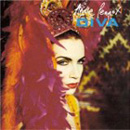 |
|
Both with the Eurythmics and on her own, Annie Lennox is hit and miss with her albums, but Diva (1992) is rock-solid. The keyboards are interesting and support the songs as well as Lennox’s piercing, emotional voice. Lennox isn’t trying to be sarcastic or to show off; oddly, because she isn’t a diva here and sings intimate songs straight the album sounds authentic. |
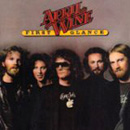 |
|
April Wine is a classic Canadian act not known well elsewhere. I saw them live in ‘99 in St. John’s and they still have one of the best drummers I know. They have a good mix of hard rock (bordering on early metal) and ballads, and this gentle song was a school-dance staple in my time in the early 80’s. Also check out I Like to Rock. |
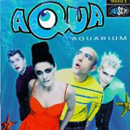 |
|
Oh, for Pete’s sakes, Aqua? For some reason I’m attracted to bands with annoying singles who have good follow-ups that no one will give a chance (eg. Rick Astley). Aqua might have been a 90’s ABBA if they had been allowed to mature, but Barbie Girl was just too much cheese. Perhaps they used up their creative talents fighting Mattel. |
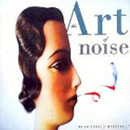 |
|
I like playful bands, and England’s Art of Noise didn’t take themselves seriously. In the early-mid 80’s they were groundbreakers, using samplers to make electronic and symphonic pieces, but they weren’t above acting like kids and sampling themselves saying "I" and then speeding it up. Close to the Edit has a wild video where the band destroys classical instruments which, presumably, aren’t needed anymore. |
 |
|
Bach probably didn’t think his music was meant for the ages, and apparently would sneak out for a drink during lulls in a long, 17th century German church service. But his choral pieces are stunning (Furchte dich nicht, Be not afraid is wonderful), and he had an ear for simple, well-constructed pieces like this haunting sequence of arpeggios. He’s also the author of numerous Lutheran hymns. |
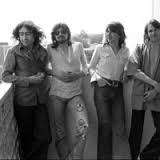 |
|
Bad Company is a guy’s band. They play hard-drinking, hard-partying bar-band music. It’s the sort of music you hear in a movie set in the American south where everyone has sideburns and aviator sunglasses as they play pool, and the girls are all blonde and ride on the backs of motorcycles. Oops, too bad they’re British. |
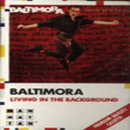 |
|
Yes, like Aqua’s one hit, I got a little sick of Tarzan Boy in ‘85 and found that Baltimora had other songs that people had overlooked. Again, maybe I like it because it reminds me of sitting on a Mexican bus or a Korean beach, but this song has a sort of goofy innocence to it, as though the singer doesn’t realize he’s used every Chinatown movie cliche ever made. |
 |
|
British Bananarama’s songs aren’t likely to be included in Norton poetry anthologies, but they are infectious ditties. Shy Boy (1983) is a simple new-wave piece with a tomboyish video and synth bass and drum sequences, and it’s interesting how their later songs such as Venus (1986) sound and look so different. |
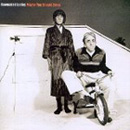 |
|
Proving that I think in weird and wondrous ways, I never liked the Barenaked Ladies because I found them too silly. Listing to "If I had a million dollars" is like being trapped in a car with friends from high school who haven’t grown up and who think some infantile in-joke is still hilarious. Oddly, Maybe You Should Drive (1994) didn’t sell well, but it’s their only album I like. A tiny glimpse of adults writing about grown-up love before the band sadly returned to their whoopie-cushion style. |
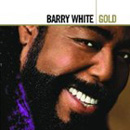 |
|
This is, oddly, a Barry White song where he doesn’t sing. People have made fun of White’s oversexed baritone and his "leave them snakes alone" cheese, but the music isn’t bad, and here’s an example of wah-wah pedal funk-soul mixed with an orchestra that’s better than you might expect. But do check out his singing tracks. |
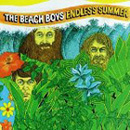 |
|
The Beach Boys suggest a time of surfer-girl songs and innocence about California, even though I felt a little disappointed when I visited California as an adult and couldn’t even get near the beach for the traffic jams and crowds. Brian Wilson might have been a little loopy, but he could write, and Pet Sounds (1966) simply doesn’t age. It was cited as major influences by the Beatles, Clapton, and Elton John. |
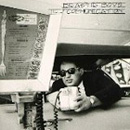 |
|
Okay, finally something a little heavier. I can only take them in small amounts, but I like the Beastie Boys, all the way from No Sleep Til Brooklyn through their jazz album (The In Sound From the Way Out, 1996). They’re really inventive with their use of sampling and the electro-hip-hop fusion they do, and Sabotage has a cool retro-looking video as well. Better musicians than they are given credit for. |
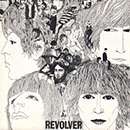 |
|
It’s hard to choose a small number of Beatle songs and to express how important they are to the music of the second half of the twentieth century. Not hearing this would be like not knowing who Shakespeare is. Penny Lane is simply a gorgeously crafted song; Something has a beautiful guitar solo and wonderful basswork; Tomorrow Never Knows, with its experimental sounds and tape loops, is said to have birthed psychadelic and progressive rock. Magnificent. |
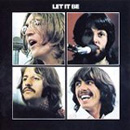 |
|
When Lennon was killed in ‘80 I was a boy and didn’t know the music well, but I started buying their albums and within a year I had most of them. The Beatles are what made me serious about music, and it’s not a bad primary education. Here are a few different choices which show early electronic and experimental influences (Here Comes the Sun & Only a Northern Song) along with two classic selections. |
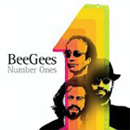 |
|
Consistently here I’ve chosen offbeat songs. This page is a little bit of a musical primer, but I also get bored with Stayin’ Alive and so I don’t always have a band’s signature tracks. The Bee Gees, from Australia, are more than hypish whines and leisure suits. Jive Talkin’ has a funky riff and this song features some of their richer harmonic arrangements. Not many people seem to know they were a schmaltzy pop act before their disco phase. |
 |
|
Poor Beethoven (1770-1827) wasn’t a terribly attractive man and his hearing deteriorated through his life, but he produced some magnificent romantic works despite being unlucky in love himself. Where Mozart supposedly wrote in bursts of sponteneity, Beethoven is known for meticulously poring over scores with endless corrections, and you can hear the craftsmanship in the music. Also check out Ode to Joy, a work so linked to A Clockwork Orange that people forget it’s a song about, well, joy! |
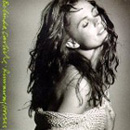 |
|
Also in the TMI category is the fact that I had a crush on Belinda Carlisle as a boy. Her albums with the Go-Go’s (later here) don’t date well, but she had a good solo career in the late 80’s and Summer Rain is vintage Carlisle. It’s a harder song than it first lets on and the guitar squeals through the end of the piece. |
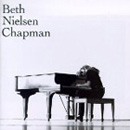 |
|
I have some obscure music on my list, and it’s not to show off. To me it’s as much a pity as a mystery that no one seems to have heard of this artist. Walk My Way was a minor hit in 1991 and Chapman has co-wrote with numerous country singers such as Faith Hill, but it’s too bad this lilting song with its catchy Spanish guitar fill hasn’t become a classic. At least it didn’t become big enough for Michael Bolton to ruin it. |
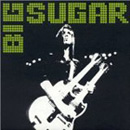 |
|
Yes, thank you, some rock, some of you are saying. Big Sugar is an act from home which grew disgruntled with the politics of Canadian radio and has since dispersed into some American bands, but in their prime they had some chunky folk-metal hits. Ride Like Hell (1995) sounds like an angrier Black Crowes at times and the solo has a pretty bluesy bite. |
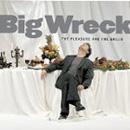 |
|
Another Canadian connection. Big Wreck is a Boston band but had more success in Canada in the late 90’s. While short-lived, they also have some crunchy tunes (Wikipedia calls them ‘neo-progressive hard rock’). The Oaf and That Song have some interesting melodies and wouldn’t be out of place if Zeppelin gigged with Pearl Jam, to drop a few names. |
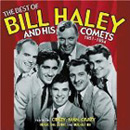 |
|
Again, this is part primer and partly reflects my tastes; I’m just sick of Rock Around the Clock. It’s fun to hear an oddity like this, recorded live with surprisingly good sound quality for an early 60’s concert track. After his American career waned, Haley remained extremely popular in Europe and Mexico and sung in fluent Spanish until his passing in 1979. |
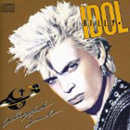 |
|
The sneer and the white weddeengg vocal style is now a little dated, but when Idol got down to business in the studio he could be killer, and he was backed up by some serious guitarists (here Steve Stevens). World’s Forgotten Boy (1986) wasn’t played much on radio, but it has an interesting rhythm and some strong keyboard backing, which is always underrated in his songs. |
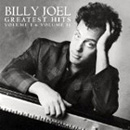 |
|
Light years away is Billy Joel. I love metal and rock, but Joel is someone who persistently tried to be a rock star in the 80’s, and his I’m-a-tough-guy-from-the-Bronx act just never suited his talents. Joel is better as a songsmith and pianist, and this ballad written for his daughter in 1993 is especially beautiful. Also classic are Scenes from an Italian Restaurant and Allentown. |
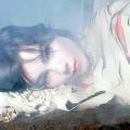 |
|
I always find Björk a frightening looking creature, and I met a fellow from Iceland who assured me she’s not typical of Icelandic women. Not everyone can get into her songs, which don’t seem to have keys or time signatures, and which can go from transistor-warm to spiky-shriek at any moment. I’ve Seen It All is an interesting piece done with Thom Yorke from Radiohead. It’s at least not boring, I promise you. |
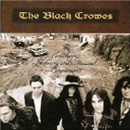 |
|
I thought the Black Crowes were posers at first when they covered Hard to Handle, but they’ve matured well into a sort of folky Led Zeppelin with their southern-blues sound. Wising Time (1994) is another song that’s good driving or traveling music, and there’s a bluesy electric piano solo in this extended jam. |
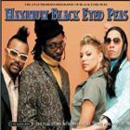 |
|
I guess I’m not in the Peas’ usual, uh, demographic at my age but it’s hip-hop with some interesting samples and hooks, and the lyrics are funnier than the usual "smack my b**ch up" rap drivel. The drum beats to Phunk (2005) always seem to be in the place I don’t expect them to be. The video is fun as well with its game show retro-cheese. |
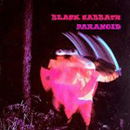 |
|
Iron Man and Paranoid are classic Sabbath too, but I’m tired of them. This song has the grit of early Sabbath but the guitar playing is getting more interesting in their early-mid 70’s offerings. At the time Black Sabbath was the end of the world but now they don’t seem so evil or outrageous. So much the better for listening to the music. |
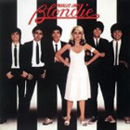 |
|
Blondie was marketed as a disco queen for a while with Heart of Glass, but fortunately they were already established as a pop-punk act and it didn’t ruin them. Rapture is a song that I hated when it came out in ‘81 because I’d never heard anything like rap before, but it grew on me and now I can see how prescient and how funky the song was. |
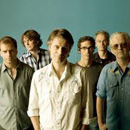 |
|
Late 80’s era Blue Rodeo evokes the usual Canadian whinging that if they were American they would be huge, which is probably true. Jim Cuddy’s soulful voice and the folky mandolins and poetic lyrics are gorgeous ("he wrote her name in the sand / never even let go of her hand"), and these two selections are must-hears. To add, I saw them live in Newfoundland several times, and they had a really easygoing, ego-less rapport with the audience. |
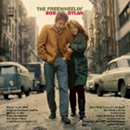 |
|
I’m not a Dylan fan. I’m not wearing a kerchief and discussing periods of his albums or sniffily claiming that he’s a poet. So sue me. But he’s put out enough that a few of his songs are even good. This one’s fun because it irritated a whole lot of folkies when he decided to play an electric guitar, and he’s not a bad player when he tries. |
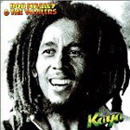 |
|
I think highly of Bob Marley. How many people more or less invent a genre, let alone reggae? I wish fewer people had his posters on their dorm walls and more listened to his catalog, which is pretty extensive and varied. Here are three classics. The Kaya album is well-produced and has more keyboards than you’d expect in 70’s reggae. |
 |
|
We forget nowadays that easy listening music used to be mainstream and rock was not. This is pretty ‘safe’ music, but so what? It makes me think of weddings in Manitoba when I was little, where some of my relatives did speak Polish. Bobby Vinton never exactly rocked out, but in older years did grow out of his 50’s teenybopper phase and have some good melodies. |
 |
|
Eddie Cantor said "It takes twenty years to become an overnight success," which is about right for American blues guitarist Raitt, who had been recording and gigging since the early seventies until Nick of Time (1989) came out. There aren’t many females in this genre but Raitt’s country-roots-pop-ish melange can have some growling riffs at times. |
 |
|
If I didn’t hear their music I’d think Boston was full of it, because they always bragged they were somehow purer than thou because they didn’t use keyboards, but used banks of electronics to treat their guitars. Nevertheless, they were such phenomenal songwriters and musicians I don’t mind that they averaged about one record a decade. Hard to meet someone who didn’t come of age in the 70’s without their first album. |
 |
|
Bow Wow Wow was a rather manufactured British band cobbled together by Malcolm McLaren out of ex-members of Adam & the Ants and a young singer named Annabella Lwin. The band had quick success with I Want Candy, a great deal of controversy over a risque album cover with the 14-year-old Lwin, and flamed out by 1983. I always wonder how grim, recession England under Thatcher could have such warm melodies such as this overlooked, chirpy gem. |
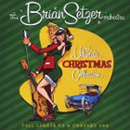 |
|
I didn’t think Brian Setzer would do anything after the Stray Cats had their illustrious career of one album, but Setzer does some pretty good rockabilly now, and it’s a harder to play that style of guitar than you’d think—— there’s no distortion to hide mistakes. This live version comes from Woodstock ‘99 and there’s a fast, pumping support below Setzer’s solo. |
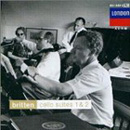 |
|
Benjamin Britten is not another boring classical British composter. He was a homosexual pacifist during World War II and wrote some pretty unconventional pieces. Paul Bunyan is a choral and orchestral piece that sounds modern without being full of screeches and atonal clacks, and formed the basis of an operetta in a 1941 production. |
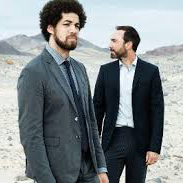 |
|
I like these guys, and it’s a wonderful video from 2014. It’s a little sad when people age and just decide they won’t try anything new. Broken Bells, from Los Angeles, have a soulful, rich dorm-rock sound with a slightly retro English late 90’s sound. Hard to think that the decade of the Spice Girls is now retro. |
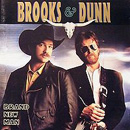 |
|
Okay, my dislike for New Country with its ten-gallon twang and overstretched vowels has a few exceptions, such as Brooks & Dunn and the occasional Garth Brooks. You’ll find on this page that I’m not a purist for anything. What can I say? Neon Moon (1991) is a good song, and I like the warm harmonies. The singer is drinking while remembering a lost love, something which hardly ever happens in country songs. |
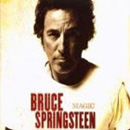 |
|
Springsteen can take himself a little too seriously, and it’s puzzling how his songs can be so full of social criticism and become redneck anthems; Born in the USA is not a pro-American album. Tenth Avenue Freezout et al can rock, but this song has Springsteen singing rather intimately, and he has a capable voice when he wants to use it. The song is from the soundtrack for Philadelphia (1993), about a man dying from AIDS. |
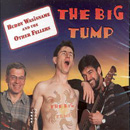 |
|
Either you’re a Newfie and you know this band or you are open to something akin to folk comedy. I get a kick out of these guys, who combine Newfoundland folk music with some Red Green-style humor. The Swearing Song (1988) is nothing more than a memorial to a father, who is presently in heaven "turning the air blue." |
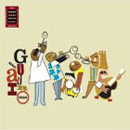 |
|
Like the Gypsy Kings, college women seem to love this band. It’s romantic Cuban jazz music, and it really does make you feel like you’re in a club drinking mojitos and dancing with a girl with roses in her hair while cigar smoke wafts. It’s funny how good music is aural but fills our heads with visual images. The album was a one-off project recorded quickly in 1997 and it has a spontaneous sound. |
 |
|
I have no critical explanation for this. I just like the song. |
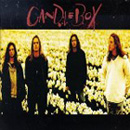 |
|
What a melody— what a voice. They’re not well known and their output is sparse, but this is one of my favorite songs; the chorus is chill-inducing. The band has ties to Pearl Jam, but fortunately doesn’t have their egos as the song is much tighter than alternative rock’s usual excesses. 10,000 Horses is from 1998. |
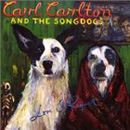 |
|
I know almost nothing about Carl Carlton, and this song came to me out of the blue. It’s a cover of the Motown hit, but Carlton was a minor Motown performer himself, and he funks up this cover into a really swinging early-80’s jam. It’s cheese in a good way. |
 |
|
Santana usually records these soaring solos backed by fast Latino rhythms, and here he plays a gentle Spanish-jazz duo with another acoustic guitar wizard, John McLaughlin. McLaughlin plays a lot of Indian influences and here too the chords could be predictable but they aren’t. These are guys who know their theory. |
 |
|
I used to dislike the Cars because they fired their drummer for a drum machine in the early 80’s and after then they seem to have the same beat in every song. Still, not many bands in the time could combine synthesizers and rock guitars like the Cars do, and here’s an example from around 1980. Good memories. |
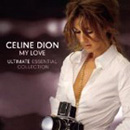 |
|
Celine Dion? I’m not saying I’m going to her concerts, and she certainly puts the lie to the stereotype that all Quebecois women are good looking. I am saying that if you can wade through the romantic slush and the interminable Titanic theme she occasionally has a well-built song. Here she has a beautiful violin solo and really does belt her pipes without sounding cloying. |
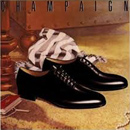 |
|
Champaigne had a few minor R&B hits in the early 80’s, and when I hear this I think of Carl making up to his wife after Urkel gets him in trouble on Family Matters. It’s that sort of gentle cheese. But it’s a pretty song with beautiful harmonies. |
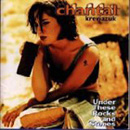 |
|
Kreviazuk is a Canadian and I didn’t think she was known well outside the country until I met someone in San Francisco who was a fan. I guess she doesn’t sound good on paper because, like Celine Dion, she has an operatic voice and sings love songs; but she’s younger and her songs can have some quirky lyrics. She praises a boyfriend who was "young and strong and perverted." |
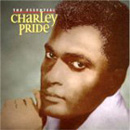 |
|
Not a lot of County-Western black singers in the 70’s, but here’s one. For some reason, and I know people who feel the same, I like old country much more than new country. It’s just naturally twangy, I guess.. as opposed to trying to be twangy in order to make a statement. Does that make sense? |
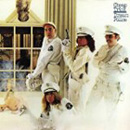 |
|
Sometimes I do pick a band’s signature song. Cheap Trick was already a good band and Dream Police is a cool track, but their Live at Budokan (1979) album recorded in Japan is a classic. They can crunch. I Want You to Want Me is a crunchy song. |
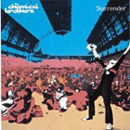 |
|
Electronica doesn’t have a good reputation, and I’ve never been one of those idiots who dances by myself at a rave with a glowstick and water bottle. The Chemical Brothers aren’t that type of electronica—there’s touches of funk and jazz, and some really fast drumbeats. The video for Let Forever Be (1999) is phenomenal with its psychadelic video effects and well worth looking up on Youtube. |
 |
|
Chicago is an old band, and as it aged they turned out too many drippy Peter Cetera love ballads. Forget these and check out their earlier tracks. Here’s a typical early 70’s Chicago song, with lots of jazz trumpets and feel-good melodies. The picture on the left is from their early Greatest Hits album, and it’s the only one you really need. |
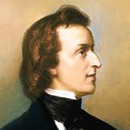 |
|
Chopin lived in Paris for most of his life but was Polish and fled war in the 1830s. A reclusive man with constant health problems, the songs are beautiful but often have a sad tone. I suppose not many romantic-era classical musicians were party animals. Partly because of performers like Chopin, the piano has become a central instrument in classical music whereas in earlier styles strings and organs dominated. |
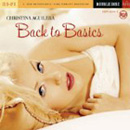 |
|
In twenty years people will laugh when you tell them that there used to be a sort of media-driven Christina vs. Britney Spears rivalry. Christina so far outclasses Spears; her songs are much more varied and interesting, and she can sing. At times she succombs to Mariah Carey disease and tries to stick in too many notes, but this track is golden. She’s also, uh, pretty easy on the eyes. |
 |
|
When Feels So Good came out in 1977 it probably discomfited the jazz police for being too popular, and I remember as a small boy hearing it played during station breaks on TV! For some reason it hasn’t aged well, but older Koreans love it and he’s popular here. The title track is typical Mangione, with its smooth, cool trumpet and safely-funky backup that simply says ‘music for California hot tubs.’ It’s a happy album. What’s wrong with happy? |
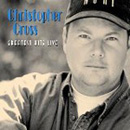 |
|
Sailing is a pretty tame track, and Cross is also usually dismissed as the sort of early 80’s adult-contemporary fluff you hear only from slightly more adventurous elevator speakers, but occasionally he does kick a song. Ride Like The Wind has a good vibe, and you’ll hear some backup from Michael McDonald from the Doobie Brothers in there. |
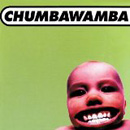 |
|
These guys came and disappeared from the charts in the mid-late 90’s (although they’re still around). Too bad as they’re fun. This song, as well as Amnesia, has really catchy, funky riffs. Not sure what it means—apparently the band’s name was purely random as well. |
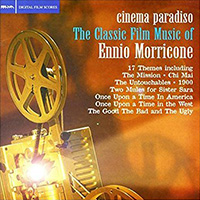 |
|
The setup for Cinema Paradiso (1988) fairly screams ‘arty boring subtitled Italian film’: a young boy grows up befriending an older man running a movie theater and falls in love with the films and a local girl. But good grief, it’s an emotionally moving film watching the boy grow up into a man, much of it propelled by this achingly gorgeous soundtrack. |
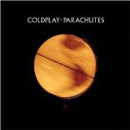 |
|
When people become old curmudgeons like me they start saying that there’s no good music anymore. But sometimes they’re right; I really do think that the 00’s and 10’s have been less than inspiring. Coldplay is a bright spot in the two decades. Trouble is a musical and mature song, and the video is an instant classic. I like this band, and they keep getting better. |
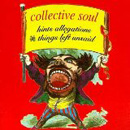 |
|
Shine, with its whoahh chorus, became a sort of stadium anthem in the mid-90’s when it came out, and their style is now a little dated. Still, the song has a great guitar solo and still kicks. Also worth hearing are Smashing Young Man and The World I Know. |
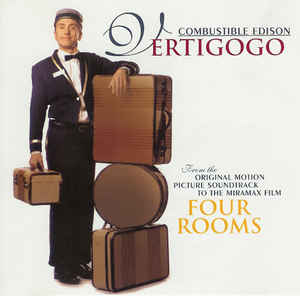 |
|
Not sure what this Rhode Island band with its pastiche of ‘50s lounge jazz and electronica is supposed to be doing, and it seems fitting that Vertigogo, a song where no one can understand the lyrics, was the soundtrack for Querentino’s Four Rooms, a film where I also have no idea what’s going on. I’m sure certain substances would help here, but failing that, lie back and enjoy this very odd but catchy creation. |
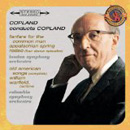 |
|
Well, I’ll probably never be an Olympic athlete, but I still feel a rush of Teutonic pride for my nation when I hear this song. As I mentioned with Britten, 20th century classical isn’t known for melody, but this is a stirring brass piece that can make anyone feel like they’re standing in a Greek stadium. Just wear clothes, please. |
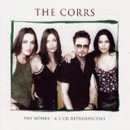 |
|
I mean no disrespect to Jimi Hendrix because he’s awesome, but I honestly think the Corrs do Little Wing better. Their MTV unplugged version with traditional Irish instruments backing up acoustic guitar just soars. The duet on One more night (Una nocha mas) is also pleasing, and also see What Can I Do. Nice deal to be a guy in a band with three talented hotties... oh, wait, they’re his sisters... |
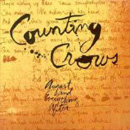 |
|
The Counting Crows was a band I confused with the Black Crowes in the early 90’s, and that sort of folk-rock style was overdone at the time, but the Counting Crows grew to be masters at the well-crafted folky song. This track has their trademark soulful lyrics and restrained playing. Also worth hearing are Amy Hit the Atmosphere and Raining in Baltimore; just the poetic song names should make you curious. |
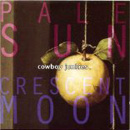 |
|
I used to joke that being the drummer for the Cowboy Junkies would be one of the easiest jobs in the world, as their tempos are so slow that you would hit the drum at most three times per song. For some reason the band doesn’t care for this album (Pale Sun Crescent Moon, 1993), but to me it’s the best mix of Margo Timmin’s delicate voice and an actual song rhythm. |
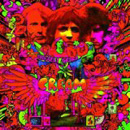 |
|
Cream was originally intended as a sort of supergroup rock-jazz-blues fusion when they formed in ‘66. Got all that? The band members didn’t get along, but it was an education for the still-young Eric Clapton, who lays down an incendiary guitar solo here on an old Robert Johnson track. Never understood why he was called Slow Hand. |
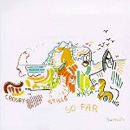 |
|
The hippie-era Crosby, Stills & Nash (& sometimes Young) is good, and there’s some nice selections (Helplessly Hoping, Suite Judy Blue Eyes), but they didn’t go away in the 70’s and 80’s and so I’ve picked some songs that are less known. Their later work has more keyboards and less Woodstock-era bongo drums and to me the vocal harmonies are just as smooth, if not more refined. |
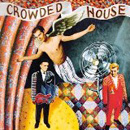 |
|
New Zealand is a small country. There aren’t a lot of major bands out of there, and Crowded House was simply the late 80’s version of Split Enz. But they’ve been called the Kiwi Beatles and they are strong songwriters. The music is more refined and melodic, and less edgy than that of Split Enz, but both bands have their charms. Four Seasons has their typical delicate, melodic vocal lines. |
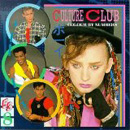 |
|
This might be a deal-breaker for some of you, who can’t believe I would listen to this guck. Wait ‘til you find out I don’t think the Spice Girls are really so bad. You don’t have to like Boy George or think his fashion shtick is anything other than ridiculous or dated now. But as I keep saying, listen to the music. Miss Me Blind is pretty sonically interesting, and there’s a good guitar solo (in a Culture Club song?) |
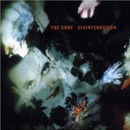 |
|
The Cure is slightly more respectable, I guess, although it brings to mind images of 80’s Goth wannabes. The Cure had way too many identical-sounding songs and remixes, but there’s the occasional gem, and More Than This is late in their career (mid-90’s) when, thankfully, they were perhaps getting a little tired of Fascination Street. As a bonus, the bass line is incredibly low. How do they do it? I test new speakers with this track. |
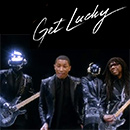 |
|
When I lived in Newfoundland in the late 90’s, French electronia act Daft Punk was known for a rather irritating, endless piece called Around the World, and they seemed to go away for a while until the band appeared to discover disco in 2013! Get Lucky is cheesy, fun, slightly smutty, but really hard to get out of your head, as good disco generally is. |
 |
|
Quick! Name all the Belgian pop acts you know. Well, if not, there is Dana Winner, who does have a substantial adult-contemporary career over three decades in Europe. This is a wonderful song, and she has a clear, crisp tone. |
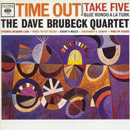 |
|
The colorful, blocky post-war art on the cover and the strange time signatures in the songs are now almost cliche facets of jazz, but in 1959 Brubeck’s Time Out was a huge sign that jazz had grown up into a sophisticated new style. With beats in 5/4, 6/4, 7/4, and 9/8, this was certainly not swing or music to dance to. Brubeck recently passed away at the very un-jazzman-like age of 91! |
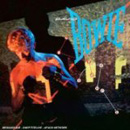 |
|
No apologies are necessary for including Bowie, who has been cool for forty years (and is apparently a good guy privately). Bowie’s tried just about everything from proto-metal to glam to pop to electronica. Essential listening is the 70’s Ziggy Stardust era albums to his lush, masterful Let’s Dance album (1983). Less known but still having bite are his later Nine Inch Nails-influenced ‘electrometal’ works, such as Dead Man Walking from 1997. |
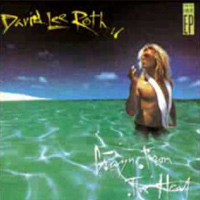 |
|
This is an eerie, haunting song about forgetting everything and living on an island somewhere. What makes it more odd is that it’s by Diamond Dave. That must have been some hangover for Roth to write such a slow-tempoed lullaby. |
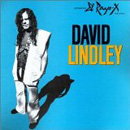 |
|
Lindley is more of a session guitarist and has played with some big names—Jackson Browne accompanies him on El Rayo-X (1981), where you’ll find this screaming, funky guitar jam. If Boston listened to rhythm & blues they would turn out something like this. |
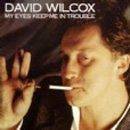 |
|
Canadian David Wilcox is a lawyer-turned-musician who sings party rock songs such as Bad Apple and Downtown Came Uptown. I saw him in St. John’s in 2000 when he was bald as a cueball, but he rocked the place. It’s beer drinkin’ music, and The Natural Edge (1994) is only a little harder than his usual bluesy guitar riffs. |
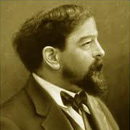 |
|
Debussy (1862-1918) was a French composer influenced by impressionism, though he later explored dissonant and mathematical writing. And unlike the lonely or sick Chopin or Beethoven, Debussy seems to have gotten around; he was involved in numerous relationships and scandals and was himself divorced. A newsmaker to the end, he was buried in a Paris funeral procession as the Germans were bombarding the city! Typically, Clair de Lune (1905) has a romantic mood but with modernist touches. |
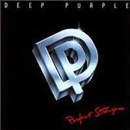 |
|
Deep Purple is best known for Smoke on the Water, but again, this isn’t a greatest hits list—it’s the songs on my player, and I’m getting a little bored of dun-DUN-DUNN... If you need the classic Purple, try out Woman From Tokyo. The band tried a few comebacks in the 80’s, and this was their first and best. I know the title is suggestive but it’s a crunchy, anthemic song. |
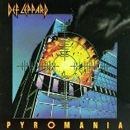 |
|
I think I’m seeing a habit in that I often pick a song recorded after a band’s glory days when they get more experimental. Fair enough. But I never thought much of Def Leppard’s early stuff— Photograph just sounds like second-rate Bon Jovi to me, and they’re not reaching for the top either. Desert Song came out in ‘93 when the hype was over, and that’s too bad; it’s an orchestral sweep of a song. |
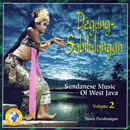 |
|
I know very little about the musicians or background of this recording, which I bought in Bali, Indonesia. Javanese classical music is centered on the gamelan orchestra, which is a large group of gong, bell, or percussion instruments similar to xylophones. Much northeast Asian music seems unbearably atonal to me, but gamelan music has a soothing, hypnotic sound. You can see it here on my photo site. |
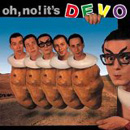 |
|
Devo is a weird band, and some of their proto-electronica songs sound cool and others just creepy. Whip It is their big song, but they have others with more imagination, such as this quirky 1982 track. They have a knack for bizarre cover versions, and their 90’s cut of Nine Inch Nails’ Head Like a Hole actually works as well. |
 |
|
I really like Diana Ross, so I mean no joke or disrespect by having a song where she doesn’t sing (she shows up here under The Supremes). This is a gorgeous instrumental track that still does have a nice Motown warmth to it, wah-wah pedal and all. |
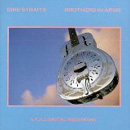 |
|
Next to Devo, Dire Straits sounds pretty straght-laced, but the musicianship is certainly higher. No one can make a guitar sound the way Mark Knopfler does, with his country-plucking and weeping tones. Skateaway (1980) is haunting; The Bug is fun. If Henry V’s speech at Agincourt ("we band of brothers") had a soundtrack, it would be the soaringly beautiful Brothers in Arms (1985). |
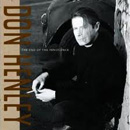 |
|
I didn’t like Henley’s early post-Eagles albums; to me The Boys of Summer was overplayed and shallow, and Dirty Laundry was just irritating ("kick em when they’re up"... over and over). Perhaps Henley, or me, or both aged, as I like his later work much more, and Heart of the Matter has a gentle, poetic sound. |
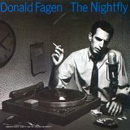 |
|
While he was in Steely Dan, Fagan had a reputation for being obsessed with perfection and endless studio retakes, and so his solo output has been small. This is a sort of feel-good jazz mash with its funky electric piano bassline, although you’re not always sure Fagan means you to take the lyrics straight. New Frontier’s video is also one of the best 80’s videos I know. |
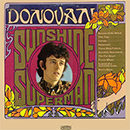 |
|
Comparisons are inevitably made between Donovan and Dylan / Van Morrison in that Donovan was hugely popular in the 60’s for his folky-hippie acoustic songs, often with Celic or Beatlesque influences—except that Donovan doesn’t seem to be a jerk. His most famous song is Mellow Yellow, with its cutesy pseudo-drug reference, but I find Wear Your Love to be a more interesting and melodic piece. |
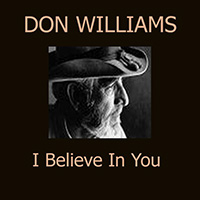 |
|
Usually, most of us don’t like our parents’ music, but Don Williams had such a husky, honest, fatherly voice it’s hard not to feel comfortable with it. "The gentle giant" recently passed away, but this 1982 hit has aged well. As I repeat a lot, old country can be twangy but has an authenticity that it seemed to lose in the late ‘80s. |
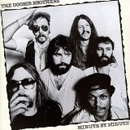 |
|
Like the Allman Brothers, the Doobies are a confusing mishmash of members dropping in and out over their four-decade career—what is it with southern rock? Their early and late material, such as China Grove, is guitar rock, and their mid-70’s albums with Michael McDonald hardly seems like the same band with their synthesizer textures. I like What a Fool Believes (1978) but it’s not typical Doobies. |
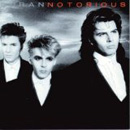 |
|
In some of their later videos they still wear the stupid Culture-Club-lite frilly clothing, but Duran Duran is still going and some of their 90’s stuff (Thank You, Undone) is really good. They’re underrated as musicians, and Rio is not only a fantastic video but a complex and multi-sectioned song. |
 |
|
Antonin Dvorak (Duh-vore-zhuck) was a Czech composer of Romantic music, particularly his Slavonic dances and symphonic pieces. From the New World is a beautiful piece based on popular folk melodies which he wrote during a tour of New York City in 1893. His following visit to Iowa didn’t produce so much (really). |
 |
|
Well, with his ten-gallon hat, guitar, and blue jeans, and with that name, you’re not expecting opera, right? If you like a little friendly honky tonk, here it is, and if not, there’s more new wave on the page. Even as cynical a New-Country hater as myself has to feel like two-stepping a little when I hear this. |
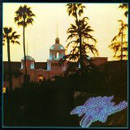 |
|
As I explain on my Band Rant page, I’m bloody sick of Hotel California and I think it’s an overrated song. For that reason it took me a long time to look further and discover that the Eagles have some really well-written music. You either like country-rock or you don’t. Their later, more acoustic work is a little poppier and the recent unpluggd album is excellent. |
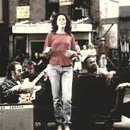 |
|
I first heard Edie Brickell (who is by the way married to Paul Simon) in one of the dumbest songs ever recorded, What I Am (1988), but somehow I ran into Good Times when it was in the Windows 95 setup CD! It’s a joyful little melody that makes me want to take Friday afternoon off and sit on a couch in the middle of the street, and be, bohemian or something. |
 |
|
L.A.-originating Electric Guest is pure millennial, in that it doesn’t seem tied to any one style or influence, having a mishmash of electronica, funk, and pop, and Bound to Lose is a very recent track (2017). But I like tracks with swoopy, crunchy synth leads, and with a sense of play. This is a solid piece and is nicely sung. |
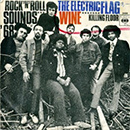 |
|
Electric Flag was a sort of power-electric blues outfit centered around San Francisco in the late 60’s; one member later played with Jimi Hendrix. They also inspired the later band Blood, Sweat, and Tears with their own electric blues & horns sound. This track is a blistering, thundering take on the Howlin’ Wolf blues song, only topped by Hendrix himself around the same time. |
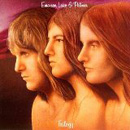 |
|
It must have been fun, providing you had the budget, to be a prog-rock band in the early 70’s and be the first to play with new toys. ELP actually was helping Moog test some of their new keyboards. The band could be self-indulgent at times when they tried to be Yes’ poor cousin, but here they’re in good shape with a very inventive and squeaky keyboard solo and some virtuoso drum parts. |
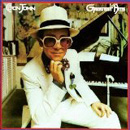 |
|
Elton John has become somewhat of a jerk in old age, but in the 70’s his music seemed more authentic and less calculatingly Disneyesque. He had a long string of hits until his writing started to become hit-or-miss in the 80’s and he strayed too far from his piano. But these are essential listening. It’s not going to please the black-metal set, but Elton is a good singer and had wonderful melodies. |
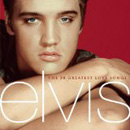 |
|
Poor Elvis has not aged well at all. He used to be considered the first big rock star, and now he’s a running joke for cheesy Las Vegas jumpsuits and pie-fed obesity. In his prime, before the bad movies, Elvis has his charms. He didn’t do it the best, but he did it first. Stuck on You isn’t Shakespeare but it’s a cool, catchy song. |
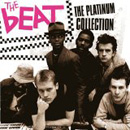 |
|
All the Aussie girls I’ve worked with (okay, not so many) seem to go nuts when I play the English Beat. And people who don’t speak English natively get really confused— they sing really fast. These guys were pioneers in ska, a sort of mix of rockabilly, R&B, and reggae. Imagine, I guess, a funkier earlier Police. |
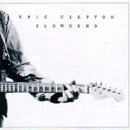 |
|
Clapton fought with substance addiction through the 70’s— who wouldn’t get hooked after playing Layla endlessly—and his comeback (sort of) in 1977 with Slow Hand features a song about it, Cocaine as well as the somewhat treacly Wonderful Tonight. Just for something different I have The Core here, one of his longer R&B jams from the album, and a live version of Motherless Children from San Diego. For a guitar god he’s a likeable guy in his autobiography. |
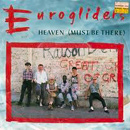 |
|
The Eurogliders, an early 80’s Australian act which was in absolutely no way intended to be a ripoff imitation of the Eurythmics, nothing to see here, did have one hit with Heaven (1984). The song does have a beautiful, stratospheric guitar line and a crisp bell-like synthesizer riff. |
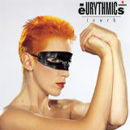 |
|
I seem to be writing a lot of entries defending unpopular bands. Here I am arguing that a popular band should be more popular. The Eurythmics were masters of synth-pop, and much music that followed them in the late 80’s was because of their sonic experiments with sequencers and keyboards, all backed by that wonderful voice. Everybody knows Sweet Dreams are Made of This, but Touch (1984) was excellent as well and maybe a little more edgy. High school dance memories! |
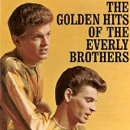 |
|
Well, they scream square now, and they came at a bad time in the 50’s when record companies were dealing with the backlash to rock by producing a lot of tame acts. While not rebels, the Everly Brothers were good at the sort of vocal harmonies that would influence everyone from Simon & Garfunkel to the Beach Boys on. They’re still alive in their 70’s and occasionally perform. |
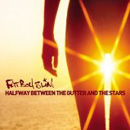 |
|
Part of what electronica needed is for people to put down their glowsticks and stop taking it all so damn seriously. Fatboy Slim makes the silliest videos—people doing a stupid dance in the movie parking lot or Christopher Walken flying around a hotel lobby or doing a silly dance while still looking as though he’ll rip your face off—and the songs sound just as liberated, fun, and spontaneous. |
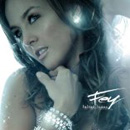 |
|
Fey is a Mexican pop singer who recorded this song in 1996, singing about a relationship which is like "bitter sugar." Some find the vocal styles and melodies of Mexican pop an interesting variation, and some become frustrated at not understanding the words. I can’t make it all out, but it’s still enjoyable. |
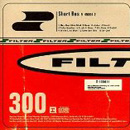 |
|
Filter is an industrial rock band, bordering on metal, and this is a pretty crunchy track—slow enough to sound Sabbath-like. I suppose it stands out here because I don’t have a lot of tracks this heavy, but the lyrics aren’t screamed and there’s a good groove to the song. |
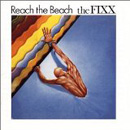 |
|
The Fixx sounded like the edge of the world when I first heard them in 1983. They were new wave at their best, a lot of new edgy keyboard sounds without the stupid makeup or glitzy drum machines. They only had one good album but apparently still tour as I saw a sign for them in Vegas. |
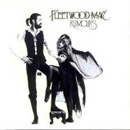 |
|
Definitely the most important American band of the 70’s, and not far behind Zep or Floyd. Rumors is essential listening in order to understand the decade, and you will be hard-pressed to meet a boomer who didn’t have the LP. Nevertheless, I’ve included Sara (1979) because it’s perhaps the most romantic song I know, as well as the gorgeous version of Silver Springs from their recent unplugged video. Songbird is also a beautiful piece that could give a rock chills if you put headphones on it. |
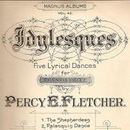 |
|
Percy Fletcher was a Victorian composer mostly known for theatre pieces, but he also wrote for light orchestra. I don’t know a great deal about Festival Toccata (1915) but I enjoy the spiky, dramatic organ plunges and swirls that somehow remind me of early movie theatres. Most people don’t sit around listening to pipe organ music but this one deserves a chance, and you don’t hear much that was written in the 20th century. |
 |
|
Toronto was the incubator for numerous great 70’s Canadian bands, including FM, Rush, Kim Mitchell, and M+M. Only Rush is really well known abroad, but "Phasers on Stun" is a wonderful track with an odd combination of mandolin and synthesizer solos. A lot of proto-New Wave songs sound a little cold now but this sounds great. It’s hard to find online because the search will get confused with FM radio, but you might also find Just Like You (1984) with its campy video. |
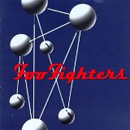 |
|
I thought that most of Nirvana’s output was trash, and I didn’t have much hope for a spinoff band, but the Foo Fighters had some pretty tight guitar riffs and fast beats in their late 90’s albums, and they’re fun to play. My Hero became a football movie theme song and it has a sort of big-screen feel to it, like many of their tracks. |
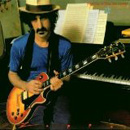 |
|
Zappa looks like a mean-looking cuss, but he was very intelligent and became influential with anti-censorship and libertarian politics in the 80’s. He played with everything from free jazz to metal to classical, and sometimes you feel like you’re missing the joke, but Montana is funny and approachable. He’s So Gay offends everyone, and Welcome to America is simultaneously sophisticated and weird. |
 |
|
Yes, I know I have the same song twice, but they’re different versions, so sue me. Again, Can’t take my eyes off of you has that expansive 60’s feel to it, but the Four Seasons’ version is a little funkier and quicker. Who loves you has some interesting, quirky harmonies as well. Both are more interesting than that damn overplayed Oh, what a night. |
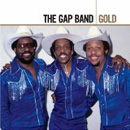 |
|
Speaking of funky, when you see black guys with cowboy hats and white glitter, you’re either at the wrong party or it’s some heavy duty grooving. The Gap Band’s videos are so ridiculous in their disco excess (even the drumsticks in the video have glitter) that it’s hard not to think that the band knew it at the time and was wallowing in the cheese. It’s still a fun dance track. |
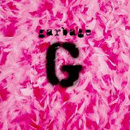 |
|
Garbage is a dance-pop mix of Scottish vocalist Shirley Manson (not Marilyn Manson!) and American musicians. Their first album in 1996 has Stupid Girl and I’m Only Happy When it Rains. Special is from 1998 and this is a live version. Manson has an amazing velvety / crackly voice, she’s easy on the eyes, and she’s a perfect match for the wall of sound she backs. |
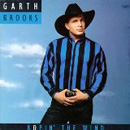 |
|
I like Garth Brooks, and not just to laugh at his songs. I don’t have any love for New Country with its drawling, phony cowboy line-dancing yee-ha’ing, but this is one of Brooks’ early tracks and it somehow sounds a lot more genuine. Whoever is playing violin gives it a Cajun sound as opposed to being a keyboard sample. |
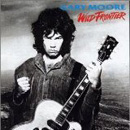 |
|
Gary Moore is a blues guitarist who was influential for lots of players (e.g. Randy Rhoads!) but was not really successful on his own despite a large discography. Here’s a smoky track from 1990 with a cool, wailing guitar backup. |
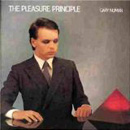 |
|
Gary Numan caused a minor scene on the SNL set when he performed with his band in 1979—with no guitar player. It all sounds tame now, but Numan was pioneering synth-pop, a style of rock with no electric guitars and mostly electronic sounds. Cars still has an edgy, other-worldly charm to it. |
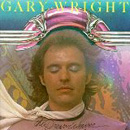 |
|
Similarly, Gary Wright was probably received a little strangely received in the mid-70’s as a band with a lead synthesist? Wright, a friend of George Harrison, has a warmer, California feel as opposed to Numan’s spiky, avant-garde British style. Many people know Dream Weaver, but I think Love is Alive is tighter. There’s a Youtube clip where he swings around a heavy Moog effortlessly for the song’s solo. |
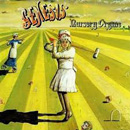 |
|
My. favorite. band. evar. I saw them in ‘92; I have almost all their albums. I am a Genesis nerd. Their early work with Peter Gabriel is experimental and full of humor, folk references, and sprawling keyboard solos and extended album concepts. The mid-late 70’s albums with Phil Collins are lush, atmospheric, and gently humorous. Who writes a song from a mouse’s viewpoint? Progressive rock is the genre everyone loves to kick, but the intricacy and musicianship of these extended pieces is marvelous when given a chance on headphones. |
 |
|
Genesis deserves two panels. The mid-late 70’s albums with Phil Collins became harder and sparser as the band membership thinned. The 80’s tracks vary in quality but have some interesting soundscapes and some crunchy, angry keyboard riffs. Genesis isn’t a party band; it requires active listening, but it pays off with virtuoso performances. This is not Sussudio; in Genesis, Collins is a world-class drummer. Check out a European drummer named Jouxplan who has Youtube tutorials of his playing. |
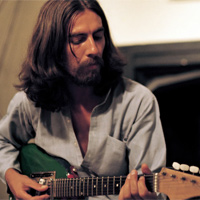 |
|
Over the years I’ve tried without success to like Harrison, but he is still my least favorite Beatle. Not that he’s a bad guy (at all), but those damn sitars; and that whiny, bee-buzzy guitar sound he always played in turns me off. But here and there he has a great song, and I like the horns on this early solo piece. "If not for you" and "Blow away" are great too, and almost make up for "Got my mind set on you." |
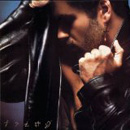 |
|
Me, like most of the industrialized world over sixteen, scoffed at the nadir of 80’s pop-cheez Wake Me Up When You Go-Go, and endless shots of Michael’s bum in his early solo videos. He got better. Father Figure is far more subtle, mature, and soulful, and well-photographed in the video. The lyrics jumped a few levels in my mind when I realized he was singing that he will be the girl’s father figure and isn’t just being a pop-tease. |
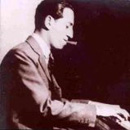 |
|
In Gershwin’s short life he merged classical and tin-pan alley jazz into a prolific set of opera musical and orchestral pieces. You might expect a lot of tut-tutting about his lack of classical purism, but he was well-received by European composers of the time for his hybrid writing. Also worth hearing is some tracks from Porgy & Bess. |
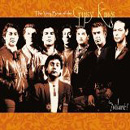 |
|
As with Buena Vista Social Club, this seems to be a band that you can’t go wrong with at a party with humanities students; women seem to adore them. I think these guys could order Chinese take-out and it would sound passionate. The language barrier is a factor, but they’re so good at soulful melodies and Flamenco guitar riffs it grows on you. Some people prefer their strictly acoustic work, but I don’t mind their keyboard tracks and they’re tastefully done. |
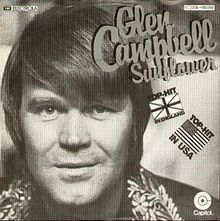 |
|
Lately, music journalists don’t want to admit they respect country, because country is never cool, so often there’s a kind of stick-handling where such artists are "folk," or at least pop crossovers. I guess Campbell ticked both boxes with Wichita Lineman and his lite-rock Southern Nights. But he’s generally underrated for his voice and guitar playing, and Sunflower is a brash, confident track (written by Neil Diamond; what didn’t Neil Diamond write in the 70s?). |
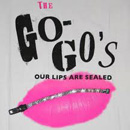 |
|
As a record producer explained in a documentary, the concept for the music video was so simple: put some bikini girls in a convertible and have them drive around, and let people live the summer fantasy. It sounds like trashy reality TV now, but in 1981 the Go-Go’s were more innocent fare. Not many people realize, though, how groundbreaking an all-female band was then, only a few years before the Bangles. |
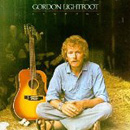 |
|
When I was a boy in the late 70’s, Lightfoot and Anne Murray were the darlings of CBC, the Canadian national broadcaster. As an Albertan, to this day I feel the irk of a colonial being told by my betters what’s cultured and what isn’t. Lightfoot takes himself a wee bit too seriously in tracks like Wreck of the Edmund Fitzgerald, but he was a guitar songcrafter in the ranks of the best. Again, I know it’s a whinge, but he would be in the ranks of James Taylor were he an American. |
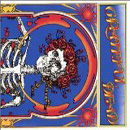 |
|
I’ve known Deadheads, and after hearing boring stories of how they toured the country in ‘77 following the band, how much drugs they smoked, and how cooler than thou they are, it’s easy to hate the band. But don’t blame the band. Radio stations seem stuck on playing that one damned song, Casey Jones, ad nauseum, but they have lots of accessible jazz-folk fusion jams. Check out as well Alabama Getaway, especially the SNL version. |
 |
|
I don’t know much about this guy, but he’s new and has a cool, swinging, baritone voice, and seems as comfortable with new jazz work as old standards. Like Harry Connick Jr. years ago, Porter has a confident jazz style that really warms a microphone. |
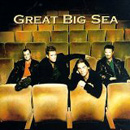 |
|
Great Big Sea is sort of the Newfie Beatles, and they have both a knack for catchy, safe melodies and for being overplayed. Newfoundland pop is not new age Celtic harp music with Enya keyboards and Gaelic warbling; it’s fast Irish dance music with lots of drums and accordions. I’ve seen them three times and the concerts are lively beerfests. I like their first album the best, and Excursion Around the Bay is a good groove as well. |
 |
|
An Australian girl I worked with hung out with the band once when they weren’t well known and were practicing for a rural gig down under; she found them likeable and good musicians. Axl Rose probably shouldn’t be your neighbor, but I have a soft spot for the band. Patience gives me chills and the Lies and Illusion albums have well-crafted songs that represent the best of what late 80’s hair-metal could have been. |
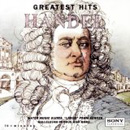 |
|
While he was also a church musician in the early-mid 1700’s, Handel never met Bach. An extremely prolific composer, Handel is best known for the Messiah (1742), but there are numerous sonatas and operas, as well as his Fireworks and Water Music scores. I chose All We Like Sheep not only because of its orchestra and thundering bass sections, but because, personally, Handel is fun to sing in a choir. |
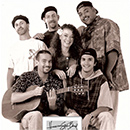 |
|
I know very little about this band. They seem to be, well, a Hawaiian band from the mid-90’s on, and they were popular when I lived in Las Vegas (which has a surprisingly large Hawaiian population). Some songs take you to a place and make you wish you lived there, and I of course think about palms and waterfalls and hula girls when I hear this. |
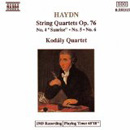 |
|
Unlike the German Lutherans Bach and Handel, Haydn was Catholic and was most prominent in the latter half of the 1700’s. Apparently, he didn’t get along with Beethoven but was otherwise a likeable fellow. One wonders how he had time to visit anyone with his enormous output of string quartets and symphonies, and some musicologists call him "Father of the Symphony." |
 |
|
I saw Heart live in Edmonton in ‘87 and they were overamplified and listless, but as a studio band they’ve had some classic tracks, and the Wilson sisters can wail a vocal. Some of their early work, like Barracuda, is pretty crunchy, but I find some of their late 80’s albums interesting for the orchestral sound they were developing. Guitar purists will blanch as I like their keyboardy era songs, but Wait For an Answer is a very complex piece. |
 |
|
I don’t know what to call Helmet’s style, so I’ll call it dorm-metal. They were popular in the late 90’s with college guys when I was in grad school for their thundering (phat?) guitar chords and fast drumming. As with Filter, I like Helmet because they have some odd and inventive chords and don’t simply resort to screaming in their lyrics. |
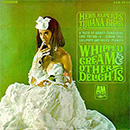 |
|
Well, these guys sound so dated and cheesy in their easy-60’s pop-jazz trumpet tracks that they make ABBA look like NWA, but what’s wrong with some fun music sometimes? Everyone’s parents seemed to have this record when I was a little boy to play at parties. Now all I can think is, how could such a square band get away with a hot naked girl in whipped cream on their album cover? |
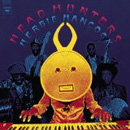 |
|
You must hear this. I don’t know any jazz player as funky as Hancock or as good at a flying, swirling, beeping, smoking synthesizer solo. At the time it was on another planet, and now it is a little dated, but I just don’t know anyone who’s a virtuoso of synthesizers like this nowadays. Rockit is a good song, but there’s so many great tracks from before and after his rap-jazz fusion albums which are worth hearing. |
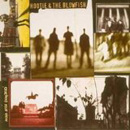 |
|
Okay, here I go again—another band that made everyone sick of them with their debut and then recorded a good album that was ignored in the backlash. This Georgia band released their followup in 1996, Fairweather Johnson, and it has a sadder, more mature sound. Old Man and Me is a gentle, expansive rock song about a war veteran, far away from their usual pop lyrics. |
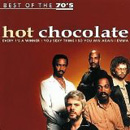 |
|
Well, why not? Does every song have to have a windy thesis or have nine key changes? There was some good music that crawled from the depths of late 70’s disco, and You Sexy Thing is the right type of cheez. Play it at a party and no one will question you. I’ve included the alternative version from the rock video because it’s a little faster and funkier. |
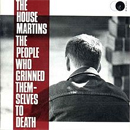 |
|
The Housemartins, from Hull, England, also have that 80’s new-wave melodic warmth to their songs. The band had a strange mix of Marxism and Christianity to their lyrics—sort of like Morrisey without the self-destruction? An odd piece of trivia: this northern bar-band best known for Happy Hour had a lead singer, Norman Cook, better known by his 90’s pseudonym Fatboy Slim. |
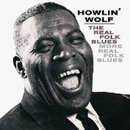 |
|
Howlin’ Wolf was a Chicago blues electric guitar player in the 50’s and 60’s. He doesn’t fit the blues musician stereotype as he was wealthy and a solid family man all his life, but Howlin’ Wolf could scream a guitar and would influence nearly all the British invasion players. By 1964 standards, the original Killing Floor is a heavy riff, almost proto-metal. Louise is a slower, bluesier, but also crunchy song as well. |
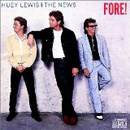 |
|
Hip to Be Square is one of the dumbest tracks ever recorded—a song praising selling out by a band which has sold out. So much of Huey Lewis’ songs sound like corporate efforts, but occasionally they have a good riff that doesn’t sound like a beer commercial. Back in Time is a song for the Back to the Future movies and is hopelessly dated, but there’s a solid horn section and it has a decent groove. The best of a so-so lot. |
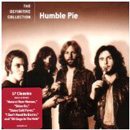 |
|
You might recognize the backup vocalist and guitar player here—a younger Peter Frampton, who was about twenty when this incendiary solo was first heard in 1970. Frampton left in 1971 and the band correspondingly faded, but here there’s a smoking hint of what’s to come in his later solo career. |
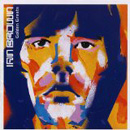 |
|
Ian Brown is an English rocker described as a ‘cult icon,’ usually meaning that he isn’t famous enough or consistent enough to be a ‘rock icon.’ His musical style is all over the map, but Golden Gaze is a masterful metal-electronica fusion from the late 90’s. It has one of the hardest, angriest synthesizer bass lines I’ve ever heard. |
 |
|
Icona Pop’s I Love It (2012) is one of my newest entries, keeping up my street cred with the young people, don’t you know. Though the duo is Swedish they sound like The Waitresses to me with their punky British sound. It’s an infectious song with a Lady Gaga-esque crunchy bass line, and maybe with lyrics a little racier than what the Brit-punks were doing in the early 80’s... |
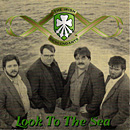 |
|
Only in Newfoundland is an Irish fiddle and accordion band rock stars. Again, Newfie pop isn’t save-the-whales flute dirges but fast dance reels and percussion-heavy acoustic grooves. The Irish Descendants’ first album, Look to the Sea (1993), is a gem, and these tracks are soulful, romantic folk classics. They’re kind of a Newfie Gypsy Kings. |
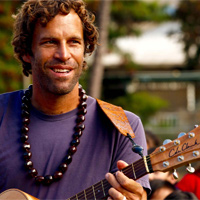 |
|
I don’t know much about Jack Johnson, as he’s a recent entry. He’s a Hawaiian, and there aren’t many sad songs by Hawaiians when you have sun and waves every day of the year. This isn’t a surf song, but it does have a gentle hippie vibe to it. |
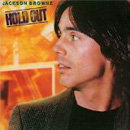 |
|
Wikipedia calls Jackson Browne part of the "Southern California confessional singer-songwriter movement." That doesn’t sound very promising ground for a 21st century listener who isn’t a Baby Boomer, but Browne’s music does have a sweeping, melodic, intimate sound that isn’t pretentious or narcissistic. Boulevard (1979) has an unusually kicking guitar, and Running on Empty is great too. |
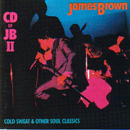 |
|
Hit me—yoww! Not many people can claim to have basically invented a genre, let alone funk. But Soul Brother No. 1 was the undisputed master of the groove, leading soul straight from orchestral crooning in the early 60’s to thumping disco in the late 70’s. Papa’s Got a Brand New Bag and Get Up Offa That Thang are both essential listening and sonic candy. But Cold Sweat (1967) was the funky lightning bolt. |
 |
|
Speaking of pretentious, James Taylor is one of those adult-contemporary 70’s artists who lends himself to parody. I don’t know that the man deserves his reputation, but self-importance just seems to cling to folk guitarists generally. If you can leave behind the Boomer rhetoric, Taylor is admittedly a good poet-songwriter and Sweet Baby James is a beautiful song. Fire and Rain is solid; Mexico deserves a listen. |
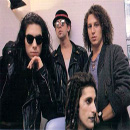 |
|
Heavens to Murgatroid, what is Jane’s Addiction doing on a list next to James Taylor? Because the list is alphabetical, that’s why. I know I don’t look much like the hardcore punk type, but these guys do a really kickbutt version of the Doors’ song. The guitar just cuts in this song and it’s a well-mixed live version. |
 |
|
I suppose something good can come out of Calgary once a century or so, and Jann Arden has some beautifully smooth melodies and heart-ripping songs. I found this song uncomfortable in college as the song concept is a bit sacrilegious, but "Could I be your girl" has a nice innocence to it as well. Arden is also apparently quite a comedian in concert. |
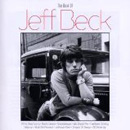 |
|
Jeff Beck is a sort of recluse-rocker who only pops his head up once in a while since the 60’s, and only as a session musician for the best. People Get Ready (1984) is a gorgeous, atmospheric song, and Beck’s soaring solo matches Stewart’s gritty, passionate voice here. One can almost forgive him for Do Ya Think I’m Sexy. Almost. |
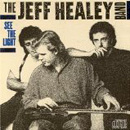 |
|
I saw Healey in Newfoundland in ‘99, and he was in top form. He had a dry Canadian sense of humor and even made jokes about his blindness. Healey passed on recently, and that’s too bad; but his first album in 1988 is the best and has this roaring, bluesy solo. See The Light is great too. |
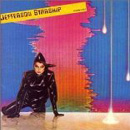 |
|
Forget about We Built This City! Starship is a way better band than that cheesy piece of drivel. Jefferson Starship / Starship / Jefferson Airplane is a San Francisco group that evolved from psychadelic rock in the mid-60’s to pop in the 80’s, and there’s quite a distance between White Rabbit and later styles. Jane is a gorgeous song, and I hear it and I’m at summer camp again as a boy and falling in love for the first time. |
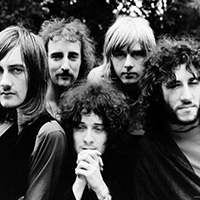 |
|
Jeremy Spencer isn’t well known now, but he was an early guitarist for Fleetwood Mac. For some reason I hear Travellin’ a lot on Korean radio, and it has a pleasant, late-‘70s AM radio feel. Summer lawns, comic books, and root beer come to mind. |
 |
|
Not a lot of Senegalese-Swedish singers, but holy crow—this is an achingly sad song, and yet Folker has a sexy, warm voice that somehow matches it. Goodbye came out about 1998, and there’s not a lot of breakup songs where the lover wishes her ex well either. Folker hasn’t been successful lately, unfortunately, though singing in Swedish doesn’t help. |
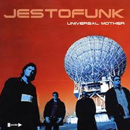 |
|
They’re described as an "Italian acid jazz band." Just like Elvis was. The song has an interesting, funky bass line with a buzz-saw attack and a singer with a soulful croon. I assumed this was 70’s black funk, but in the 90’s every genre seems to go haywire. |
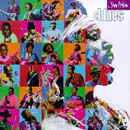 |
|
While I think Jimi Hendrix is one of the most important musicians of the 20th century—there wouldn’t have been heavy metal or hard rock in the same way without him— to me he’s underrated as an electric blues player. Hendrix is Howlin’ Wolf a generation later, faster, louder, and more complex. Check out his Blues album for these little-known gems, such as this funky, crunchy jam. Had he lived, this is the direction he would have gone further in. |
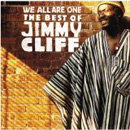 |
|
Jimmy Cliff is a sort of crossover ska and reggae artist who’s been around a long time and has had some singles but no sustained success. I have no academic reason for choosing this song; it has happy lyrics and a catchy riff to it with its easy reggae / Mexican trumpets groove. It’s an early 70’s song that makes me feel like I’m a boy, sitting on the floor next to an old furniture-style stereo with a pile of LPs. |
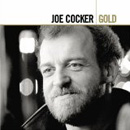 |
|
Joe Cocker was performing in the late 60’s, and onstage he looks so fevered and quirky you think he’s having a seizure. Over the years he’s mellowed, but his gravelly voice has become gravellier, if that’s a word. In the early 70’s he was known mostly for cover versions, and his Feelin’ Alright (1970) is a bluesy, energetic piano rocker better known than the original by Traffic’s Dave Mason. |
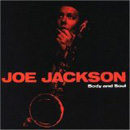 |
|
Joe Jackson is a good example of how punk seemed to dovetail into new wave somehow—it’s a bit of the rawness of punk with the rhythmic beat of disco and the experimental edginess of electronic music. Thus Jackson’s Night and Day (1982), an odd mix of synthesizers and Cole Porter influences. Stepping Out has a hypnotic beat to it, and the Cinderella hotel maid in the video is a nice cinematographic touch. |
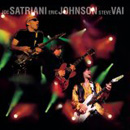 |
|
Serious axe players love Satriani, but an album of guitar solos can be as tedious and self-indulgent as one of drum solos; does anyone listen to Surfing With the Alien anymore? But this late 90’s temporary supergroup of guitar gods is a pure treat as there’s some vocal muscle too, and this fiery cut of Zappa’s 70’s song has some wonderful soloing as these masters riff off each other. |
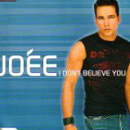 |
|
Joee is a Canadian pop singer, which surprised me, as his music sounds like Latin pop for an American audience, a la Enrique Iglesias. The song isn’t Shakespeare; it’s a party tune with some Flamenco guitar and some hot Latina babes and scooters (mandatory on all 1999 rock videos) in the video. I won’t justify it further. Is that Shaggy singing on the chorus? |
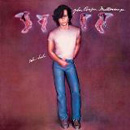 |
|
I can appreciate that John Mellencamp hates that cheesy "Cougar" name some record company marketer gave him for his early albums; it’s admirable that he’s involved in farming politics. But man, his later work is square and depressing— if you want people to leave your party, play rain on the scarecrow, blood on the plo-oww... His earlier work has a lot more spit and fun to it, like this early 80’s rocker. |
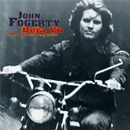 |
|
In comparison, John Fogerty didn’t turn into a humorless old fart as he aged, and being a member of CCR in the 60’s, he was already 40 when Centerfield came out in 1985. The title track is okay, but Rock ‘n’ Roll Girls is a lot more of a party song and there’s a nice rockabilly saxophone solo. |
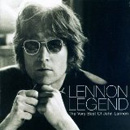 |
|
Borrowed Time actually wasn’t released until 1984, four years after Lennon’s death. It’s a sad song when you think of the circumstances but also a song about finding peace in maturity. Yoko Ono doesn’t deserve 1/10 of the abuse she’s had over the years (despite her "singing"), and she was a good influence on him if he could grow into making a song as deep and playful as this in his 40s. His last few albums sound so much more mature and interesting to me than his early hippie Imagine gorp. |
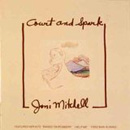 |
|
Joni Mitchell is from southern Alberta, but she left to be a New York and then California folkie. One of my former coworkers roomed with her for a while in the early ‘60s in Toronto. Court and Spark (1974) was nevertheless heavily promoted as Canadian content, and it still sparkles with her quirky wit and guitar playing. Later on Mitchell became more experimental and crabbier in interviews, but she still has a strong following. Apparently Led Zeppelin’s Going to California is about her, as the band members had a crush on her. |
 |
|
Journey is another odd band as their earlier 70’s material is quite different, and after Steve Perry they did something bloggers usually joke about: they hired a Filipino lead singer who sang Perry better than Perry did! Critics have never respected Journey for their sugary stadium ballads, but they’re not a bad band, and they have some rock-solid romantic melodies. Everything they record has this giant, epic, studio sound. |
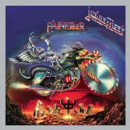 |
|
Judas Priest fulfilled every possible cliche of early 80’s metal: leather, check; motorcycles, check; wrist spikes, check—so that you can’t believe they weren’t having fun with it. This isn’t thinking music; it’s party music, and the crunchy guitars and Rob Halford’s stratospheric wail make it hard not to drive your car faster. Hard to believe the establishment felt so threatened by metal at the time. |
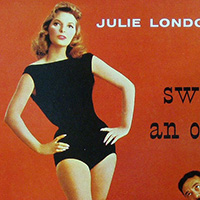 |
|
Not sure how to segue from Judas Priest to this, but Julie London was a late fifties American singer known for her (then) risque album covers. Now it’s more or less tinky piano pop. But hey, I’m a sucker for a bubble machine and a little soft-shoe. |
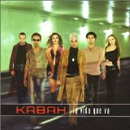 |
|
Kabah is another of my Spanish pop favorites from the early 00’s. As with my other Latin choices, there’s a heavy beat and rich harmonies. On this song there’s different people singing, giving the piece somewhat of a Mexican ABBA feel. Mexicans also know the band for their theme to the Latin reality-TV version of Big Brother. |
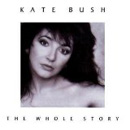 |
|
When I think of the smutty, moronic lyrics that most rap songs have, and how infantile much of 21st century pop is, Kate Bush sadly seems a century away (which she is; Wuthering Heights is 1978.) Who could possibly get airplay now with a song based on a Victorian novel, in this case Cathy speaking to Heathcliff? Bush continues to have a cult following for her intelligent songs, but this is her first hit. The video, with its eery ghosting effect, is very advanced by 1978 standards! |
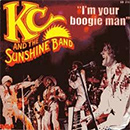 |
|
Well, there was a time when they were cool. Actually, I’m not sure there was. I have a soft spot for genres which have a self-awareness of their cheesiness, and disco certainly qualifies. On the other hand, even in the 70’s there weren’t many racially-integrated bands like K.C. & the Sunshine Band, and certainly not many bands with a lead singer that tall. |
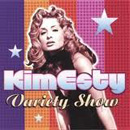 |
|
You’re going to wonder about me, as Pictures of You (1999) sounds a little kiddy compared to other tracks here. A song about a lonely girl missing her summer boyfriend isn’t all that profound, but it’s a warm, happy melody. I won’t try to justify it further. |
 |
|
After Max Webster, Kim Mitchell turned out a long series of late 80’s party anthems, although he’s also good at the occasional gentler piece like this one. There was a time in the 80’s when I was so sick of that damned childish, repetitive Patio Lanterns that I began to hate Mitchell, but years later I can come back to his better stuff. That’s a Man is a strutting, growly song also worth hearing. |
 |
|
Being a progressive-rock guy, I’m embarassed to have gotten into these guys so recently. They’re an old British Yes/Genesis-era band, though with quite a shifting lineup (guitarist Robert Fripp apparently not being the warmest or most agreeable man to work with). They’re less keyboard-oriented than most prog rock acts and in the ‘80s they have some wacked-out experimental instruments and percussion playing, but Starless is a nice entry point for its soaring guitar and lyric lines. |
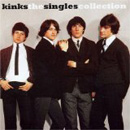 |
|
The Rolling Stones were marketed as bad boys, but were tamer in private; the Beatles were bad boys marketed as squeaky-clean. The Kinks were at times edgier than both, with weird songs mocking Churchill or about transvestites (Lola). They had a great comeback album in ‘83 with this song and with Self-Destroyer, which is heavier than you expect. Some call You Really Got Me (1964) the first proto-metal song for its early use of power chords. |
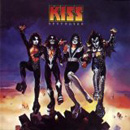 |
|
One of my brothers saw Kiss in Edmonton in the late 70’s, and said he didn’t enjoy the concert much with all the teenage girls screaming. At the time Kiss was the end of the world to church groups with its Satanic glam overtones, but musically, Kiss was about as respectable as the Jonas Brothers are now. Looking back, there are some great guitar chops and some solid grooves. |
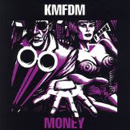 |
|
Okay, Ken, really? The same guy who likes Andy Williams? I told you I have a wide variety of tastes. KMFDM is a sort of punk-electronica-metal melange, and this is a spiky, angry, thundering piece that makes Nine Inch Nails look lightweight. When I was in dorm in the late 90’s, this was the music I would play to put me in the mood to go clubbing. It usually worked. |
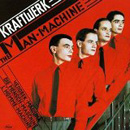 |
|
Kraftwerk is one of the most important bands of the 20th century. Seriously. They inspired early rappers such as Africa Bambaataa; they were pioneers for new wave and electronica. Any sort of music heavy on keyboards or samples owes something to these experimental Germans. Their early work, such as Autobahn (1974), has a sort of hippie naturalism to it, but later 70’s albums have their trademark ‘robot’ sound, such as this track and The Model or Neon Lights. The 2005 Youtube video for Pocket Calculator is excellent too. |
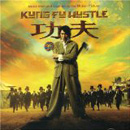 |
|
Kung Fu Hustle (2004) is a semi-comedy film about, surprise, surprise, martial arts and Chinese gangsters. I haven’t seen the film, but by chance I’ve heard some of the beautiful traditional Chinese music from the soundtrack, which is very accessible. This is an orchestral piece but even the vocal tracks on the album do not sound shrill. |
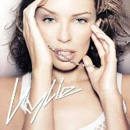 |
|
My Aussie friend gets around, as she not only met Guns ‘n’ Roses, but sexy Kylie in a nightclub as well—apparently she’s very petite. I remember Kylie from her wretched 1986 remake of Locomotion, but her career has continued to go strong in Australia. Her music has been described as pop fluff, but it’s often high quality, catchy pop fluff. |
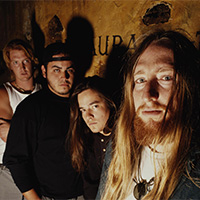 |
|
Kyuss is an early incarnation of several California rock bands of the nineties, including Queens of the Stone Age. They’re categorized as Stoner Rock, but I’m tempted to call this Military Rock or similar. One of my best friends is army and calls this piece the perfect song to drive a tank across the Russian steppes in. |
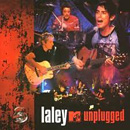 |
|
La Lay (The Law) is Chilean but they were big when I lived in Mexico in 2002. This romantic ballad starts off with a sparkling Latin guitar line but builds into a fast, strong chorus at the end. On this 2001 MTV recording the small-studio sound strengthens the intimate mood even more. I have a lot of Spanish recordings on this page; it’s a language that seems well-suited to vocal melodies. |
 |
|
Yep, I admit to liking some of Lady Gaga’s music, though the bizarre, perverted videos keep turning me off. She’s clearly playing a theatrical role, I suppose, just like Bowie or Kiss did, and her songs have great anthemic choruses. She seems to go in for fuzzy synth-bass lines, and one thing I don’t like about recordings nowadays is that dynamic range has largely disappeared. For good or bad, her songs are full volume from start to end. |
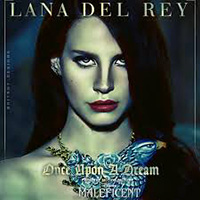 |
|
Probably you weren’t expecting a Disney soundtrack song (Maleficient) here, but I guarantee this is no Under the Sea; if I’d heard this somber, romantic, but darky haunting song as a boy it would have terrified me. Apparently the movie re-tells Sleeping Beauty with Maleficient as a fairy-witch who falls in love, making her a sort of sympathetic villain-hero. In a way Del Rey has a sexy voice, though I wouldn’t want this played at my wedding. |
 |
|
Laura Fygi is an older Dutch singer in different languages, much of her work in Spanish. I’d be hard pressed to distinguish her from a native Cuban singer from some ‘50s jazz movie on this traditional piece, "Perhaps, perhaps, perhaps." |
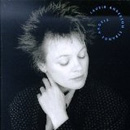 |
|
Laurie Anderson, on the other hand, has a small following, but makes abstract, difficult electronic jazz. She was popular in Canada in the 80’s but it turns out she’s from the east-coast US. Anderson is known for weird musical styles and antics, performing live with pads all over her body which trigger different sound samples. Sharky’s Day is a bizarre but playful song. |
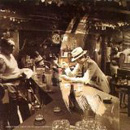 |
|
The most important rock band of the 70’s, I think—even above Pink Floyd or Fleetwood Mac. Zep is just immensely influential on everything after them in hard rock or metal. Nevertheless, I’m a little tired of their earlier, poppier songs, and Stairway To Heaven is overrated and overplayed. Check out some of their later works when they’re less worried about impressing stadium crowds and get increasingly mature and experimental as musicians. Pure gold. Guitarists jokingly complain that there’s no more good riffs to create because Page has written them all. |
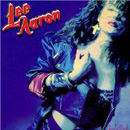 |
|
Well, I suppose this is the Canadian (and female) Judas Priest, where you have a bodacious girl singer in leather backed by chunky metal riffs. There aren’t many prominent female metal vocalists, but Aaron could howl in her early albums. This is a gem from a live performance in ‘84 that you can Youtube as well. |
 |
|
Another Canadian. Cohen was a Montreal poet and singer who apparently turned sedate female English professors into screaming groupies at readings; he’s Jim Morrison with another fifty IQ points. You can only take his depression and limited baritone rumble for so long, but at times his bassy growl is effective as it is on this gypsy-violin bar song from 1992, and his earlier Bird on a Wire, here a live version. The national poet of Canada, and far, far more deserving of a Nobel than crappy Bob Dylan. |
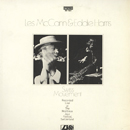 |
|
Jazz pianist Les McCann, still alive and in his 70’s, recorded the electrifying Compared to What as a Vietnam War protest song during the Montreaux Jazz Festival in 1969. It’s a great YouTube video and the saxophone solo just burns through this funky, high-energy jam. The sort of jazz you listen to on a Saturday night. |
 |
|
Level 42 is an 80’s new wave band where the bass is prominent in the song, and as I remember the bassist was originally a drummer, which explains his distinct percussive style. The synth solo here is by Wally Badarou, a sessionist who also plays on some Talking Heads albums, and it’s a funky blast. |
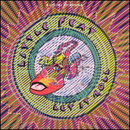 |
|
Little Feat was lauded critically in the 70’s but wasn’t a huge seller. Too bad. The Cajun-Jazz-Rock hybrid band has some great pieces. Cajun Girl (1988) has a wonderful accordion solo with a hint of zydeco in it and this is an album (Let It Roll) with a happy, chirpy sound to it. Not all southern rock has to be long, epic guitar solos. |
 |
|
There were enough Pearl Jam wannabes in the early-mid 90’s with their oh-so intense and passionate lyrics, but Live was good enough and original enough to get away with it. Throwing Copper (1995) is overall an excellent album, and Lightning Crashes is a wonderfully poetic song about death and birth that doesn’t sound contrived. |
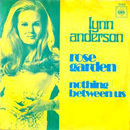 |
|
Tennessean Lynn Anderson (not the For Better or Worse cartoonist) came out with Rose garden in 1970, and it’s a pretty square classic country-western song but one from my childhood that still sticks in my head. I admit that every time I am in a real rose garden with my wife I think of the song. |
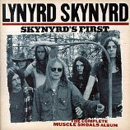 |
|
The drunk burnout who yells play freee birrd, man has become a cultural joke, but it really is a great song. I don’t have much patience for the tendency of 70’s bands to have that one signature song that goes on forever, but Free Bird keeps it going with a soaring, moving guitar solo. I saw them live in ‘99 in Newfoundland in a festival and they blew everyone else away. Plus: a two-story tall Confederate flag! |
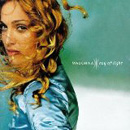 |
|
Sometimes Madonna’s antics and her soft-core porn persona are over the top, and she can’t act, but as a musician she’s occasionally top-notch. Open Your Heart (1986) is a growly, spiky jump beyond her teen-pop origins, and Ray of Light (1998), both the song and album, is a postmodern masterpiece, fusing rock, pop, and nonwestern influences. Madonna’s videos are usually very cinematographic, and this one is particularly well done. |
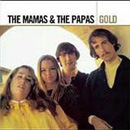 |
|
Yes, cue the fat jokes; we’ve all heard them about Mama Cass. In the chorus she even pokes fun at herself. The M&P were not around long and didn’t get along, but before falling apart in 1971 and Mama Cass’ subsequent death, the band had a small string of hits such as California Dreamin’. Creeque Alley is a little funkier and at times has a proto-rap sound to it. |
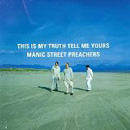 |
|
The Manic Street Preachers are an English punk / alternative band, and I’m probably not the sort of fan they’d want, but some of their later work is more accessible. Found That Soul (1992) has some of their northern-England working class spit and growl in it, but it’s a good, driving rhythm as well. |
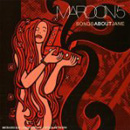 |
|
Younger viewers, if any, probably are rolling their eyes that my favorite bands are all before their birth. Sorry, kids, what can I say? Most music recorded after 2000 has been trash; so deal with it. There’s some exceptions, and Maroon 5’s Songs About Jane (2002) has some quirky ideas and riffs on it without sounding too whiny. This Love is another highlight with an interesting vocal line. The new Moves Like Jagger really swings too. |
 |
|
This is a hit song from a search-for-the-stars type TV show, and although it was overplayed for a while (Adam Levine from Maroon 5 was in danger of turning into the Phil Collins of the ‘00s, being on the radio all the time), it has a rich, jangly clearness and sparseness to it that fits Levine’s falsetto. |
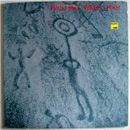 |
|
Martha & the Muffins is a weird act. Most people know Echo Beach (1979) but not their numerous albums of what I can only call progressive new wave. For some reason they would always have one awful single on their albums they would promote (Black Stations, White Stations) and people would miss their inventive, complex pieces. Don’t Jump the Gun (1986), about the Bernie Goetz vigilante killings, is a masterpiece with its mix of African rhythms and punching, soaring new wave guitar chops. |
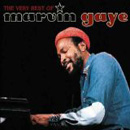 |
|
Oh, no, is he really going to put that cheesy, sleazy song on his list? Yes, I am. Sexual Healing (1982) is a romantic, funny song, and the video gently parodies adult movies rather than trying to leeringly emulate one. Gaye, of course, had a string of late 60’s and 70’s Motown hits, but I’ve picked Peculiar for its vocal energy and the driving, percussive piano line, and Give it up for its disco fun. |
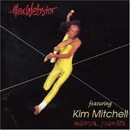 |
|
This is the 70’s iteration of Kim Mitchell before he went solo, and the music at this time is a little rawer and less commercial-sounding. But they still had some ballads, and Diamonds, Diamonds is a lush, 10cc-ish track with some beautiful harmonies. Their 1982 collaboration with Rush’s Geddy Lee was a tour de force familiar to any Canadian my age, especially the extended yeahhhh after the break. |
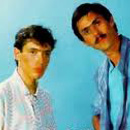 |
|
Holiday rap was a hit, because when you think of rap you of course think of two white guys from the Netherlands covering a Madonna riff. Much-Music voted the song the worst video of 1987 (filmed in a shopping mall?), and when I see it I’m still not sure if it’s meant earnestly or not. Either way, they do, well, rap, and as usual I’m sympathetic towards a goofy rap song that isn’t four minutes of obscenities bragging about what a criminal I am. |
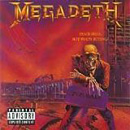 |
|
Don’t get the idea that because I have a song here I’m generally a fan of the band. I have no gripe against Megadeth. It’s just not my style to listen all day to songs about, well, death. But Hangar 18, with its crunchy, flying solo, is just too good to pass over. The song was a classic and is enjoying a new audience because of Guitar Hero. |
 |
|
Men At Work was an early 80’s Aussie new wave band with a less serious style, I guess, than Split Enz; there’s more reggae influences and humorous songs. Land Down Under got stale pretty fast and was accused of musical plagiarism, but they have other, more interesting tracks such as Dr. Hekyl and Mr. Jive. It’s a Mistake is slightly mocking in tone, about the foolishness of war. |
 |
|
Men Without Hats is a hard band to place—most people know the repetitive Safety Dance (1982), but the Montreal band had many other hits with the singer’s quirky bass trill and the band’s analog synth-pop sound. Pop Goes the World (1987) has this playful, expansive track, and Freeways, from the same time, is a Kraftwerk tribute partly sung in German! |
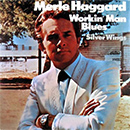 |
|
The older country singers (Cash, Jennings, Nelson, et. al.) don’t get enough credit as players. Haggard has a fast, shuffle-like guitar riff on this song which in another band might almost have a funky feel. These are entertaining guys to watch in concert clips, like in this live performance. |
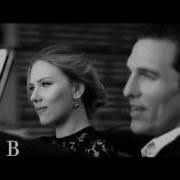 |
|
Yes, it’s another jazz standard crooner tune. Deal with it. I’m not normally a Buble fan, and his name makes me think bubble machine, but "When? When? When?", here sung with Nelly Furtado, is gentle fun. |
 |
|
Um, only one? I just don’t really care for MJ and all the drama and freakery built up around him. But I admit he has a few good songs. This is an enjoyable little piece where Jackson leaves out the stupid panting and gasping and the I’m-such-a-tough-guy shtick and has an interesting and soulful melody. Too bad there weren’t more like this. |
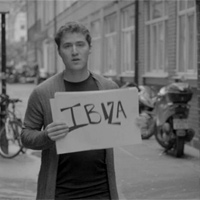 |
|
It’s easy to mock this song as trippy cheese, as a piece that conjures up all the bad cliches of techno and glowsticks and spoiled millennials at island music festivals. But these aren’t bad things, and it’s a fun, atmospheric, floaty type of song with its chirpy, backwards-sounding keyboard riff. No, I haven’t been to Ibiza or taken anything stronger than Tylenol, but the song makes me imagine I’m there. |
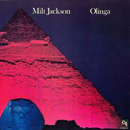 |
|
Milt Jackson had a loong fifty-year postwar career as a bebop vibraphonist, but I’m always partial to jazz from the 70’s, and this track, from Olinga (1974) has a wonderful synthy electric piano line backing the vibraphones. My favorite jazz instrument, and one that puts my mind on a summer lawn watching an outdoor concert, no matter where I am. |
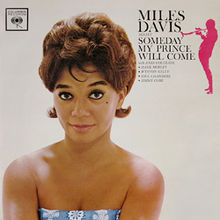 |
|
For some reason Miles Davis has never grown on me, and I get bored by his recordings. That’s heresy for jazz fans, and all the big jazz musicians of the last half-century or so revere the man. I’m trying to give him a chance, and there’s a track or so here and there now that I feel like I’m aging into enjoying. Hopefully more will follow. |
 |
|
Miley Cyrus, cough, after Miles? I know, I know-- I really ought to hate this. It’s not my demographic at all. But these otherwise rather annoying girls have talent, and I have to grudgingly admit that they have a great vocal blend on this track, a cover of the Crowded House tune. |
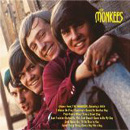 |
|
Not even the stuffiest fan will deny that there was a certain amount of demographic marketing with the Beatles, but the Monkees were an out and out vehicle assembled for TV, as phony and artificial as New Kids on the Block. Initially, no one in the band could play drums. To their credit, the band eventually seized the reins of their careers and became actual musicians, leading to this 1968 hit. |
 |
|
The Moody Blues are an underrated band. I don’t know of many acts in the 60’s who combined orchestral scores in their music, and their style of complex psychadelic rock would help give birth to progressive rock. They also had a strong comeback in ‘81 with Gemini Dream. Also worth hearing is Tuesday Afternoon (1967), with an electronic instrument using tape loops called a Mellotron, used on a lot of Genesis’ early albums. |
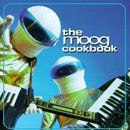 |
|
Moog Cookbook released two albums, and this track from 1996 is a version of the Nirvana song performed on 70’s-era Moog keyboards. Hearing the band rip down sacred cows by Neil Young, Lenny Kravitz, the Eagles, and Boston with these cheesy, squeaky keyboards is hilarious. Bring on the flared pants and fondue pot. |
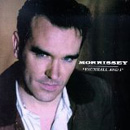 |
|
Morrissey, previously in the 80’s new wave punk act the Smiths, is, well... a jerk. But when you get into his music you start to see his sense of humor. This track is from a wonderful live album from 1992 with a crunchy, rockabilly sound. On another album he end with "this is the last song I will ever sing," and a crowd cheers in the background. He’s getting old, and now he looks like your intoxicated uncle trying to dance at a wedding, but it’s still all good. |
 |
|
For a while in the early-mid 70’s metal went out of fashion, and there weren’t many bands as heavy as Mountain. Many people know the grungy Mississippi Queen, but this song is a growly, thundering cover of the Chuck Berry song with a boogie-woogie piano backing. Rock won’t get this heavy again in the states until Van Halen. |
 |
|
Mozart (1756-1791), born Johannes Chrysostomus Wolfgangus Theophilus Mozart, probably earned his genius trying to remember and pronounce his name, and was a friend of Haydn and possibly met Beethoven. Mozart apparently did like dancing, earthy humor, and wrote speedily and with emotion, but the "smutty boy" depiction of him in Amadeus (1982) and the Salieri murder-plot are inventions. |
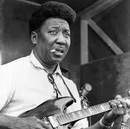 |
|
Muddy Waters is called ‘the father of modern Chicago blues’ by that august source Wikipedia, but certainly as one of the first electric blues guitar players he influenced nearly every British rock or metal guitarist after him. Make love to you (1954) has a slow, solid rhythm and howling harmonica solo that I always associate with a sleepy, dark Saturday night in dorm. |
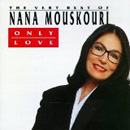 |
|
So I’m old. I like a few Nana Mouskouri tracks. Although I'm a Christian, I don’t have much Christian rock here because it’s generally very bad; but I do like sacred music. If you can hear Mouskouri’s virtuoso Greek vocal chords soar over this stunningly beautiful rendition and not have chills, you’re a rock. Ditto for Song for Liberty. She recently retired after a freakin’ five-decade career. |
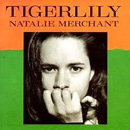 |
|
Early 90’s Natalie Merchant, also of 10,000 Maniacs, does have a certain depressing ethos in her singing, and I don’t expect a cover of Walking on Sunshine, but she has a warm, expressive voice. How else can I explain that in such a thoughtful, reflective song I really do visualize a summer carnival grounds? Even so happy a song as Kind and Generous sounds wistful. |
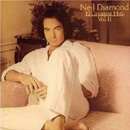 |
|
Neil Diamond began his career cranking out commercial product for bands like the Monkees, but despite the contrived Vegas glitziness of some of his schtick, he admittedly has a powerful voice and excellent songs. Cherry, Cherry, Forever in Blue Jeans, and Love on the Rocks are all 60’s and 70’s classics. The sort of music you discover on your dad’s old LPs and are forced to admit is pretty good. |
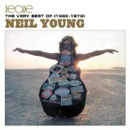 |
|
I used to make fun of Neil Young’s girlish whine, but he’s actually not a bad singer and he has the courage to try some really different styles—rock, grunge, rockabilly, country, electronica, and so on. Harvest Moon is gentle, mellow, and romantic; Free World is political and angry. The songs are only four years apart (’92 and ‘88), and couldn’t be more different. |
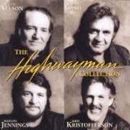 |
|
Released in 1985 during the fetid grip of New Country, apparently this supergroup project was so out of fashion that it had to be privately funded and recorded. Contrary to everyone’s belief, Old Country is usually less twangy, and the vocalists don’t feel the need to make forever sound like a seven-syllable word. This is a thoughtful, mature album with an easy, folky feel. |
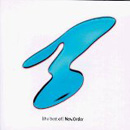 |
|
New Order is a very early 80’s British new wave band, and they’ve been called the grandfathers of techno. They have a Depeche Mode feel, but the groove is more relaxed and hypnotic, and the lyrics seem to take themselves less seriously. Blue Monday is the best-selling 12" single ever (not that there are a lot of high-selling 12" singles), and this is a live cut from 1983. |
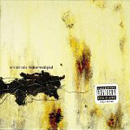 |
|
I’m not generally a fan of industrial. I’ll admit that it’s a legitimate genre and an interesting mix of electronica and metal, but I can only take it in small doses, and I’ve never seen NIN videos because my stomach is just too weak for the semi-death pornography they apparently feature. I’ll just say that Burn (1994) and Closer are cool, grungy tracks a la carte and leave it at that. |
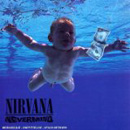 |
|
It’s a sad feeling when you realize that you don’t understand a new trend and that you’re getting old. I felt like this in 1991 (!) when Smells Like Teen Spirit came out. I loathed the song then and still do, and have never gotten the appeal of grunge. But what can I say? Nirvana’s unplugged album isn’t bad, and this Bowie cover is sparse and pointed. When he stops screaming, Cobain has an interesting voice. |
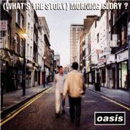 |
|
Sometimes you need to separate the music from the artist. The members of 90’s Britpop band Oasis are legendary for being arrogant jerks, but if you can let that go— John Lennon wasn’t as nice as he’s made out to be either— Oasis has some solid stadium anthems. Oasis songs tend to sound alike, but Don’t Look Back in Anger has a particularly epic-sized sound to it. |
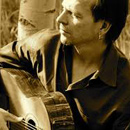 |
|
German Ottmar Liebert is a 90’s and newer flamenco guitarist whose light, pop pieces might put him in danger of being the Kenny G of Latin guitar, but nevertheless it’s always hard for me to turn down Spanish music. His work is heavy on keyboards and has the feel of Santana if he went acoustic. |
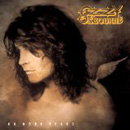 |
|
Nobody knows what to make of Ozzy lately, as there really aren’t a lot of precedents to tell us what an aging heavy metal god is supposed to do. Ostensibly, they ride on swans to Valhalla, not make insipid reality TV shows. But I like Ozzy because he’s self-deprecating and has stellar guitarists. Osmosis (1995) might be an odd choice for favorite Ozzy album, but here Zakk Wylde is a wall of thunder. |
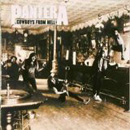 |
|
This is the heaviest song on my list, even heavier than Ozzy or KMFDM, and borders on thrash metal. In the 80’s Pantera had the typical glam-metal look of big hair and spandex, but evolved into a much more alternative sound in the early 90’s. I can’t listen to Cowboys From Hell everyday; I have to be in a mood to smash things! |
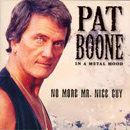 |
|
Watch the YouTube clip of him at the 1997 American music awards with Alice Cooper trying to keep a straight face at the former ne plus ultra of squares—the man so straitlaced that he once agonized over covering Ain’t that a shame because it displayed bad grammar. The only two explanations are either insanity or else that Boone has a rich self-deprecating sense of humor. It’s worth playing his corny lounge-show versions of classic metal songs just to watch purists squirm! |
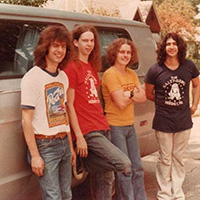 |
|
In fusion jazz, Pat Methany is big. Like, Jimmy Page big. So much music makes me think of a place, and to me this jazz should be heard on lazy, hot summer nights on the grass. Fast synth-guitar solos aren’t to everyone’s taste, but to me this is magic. Apparently an audience member pointed at a guitar onstage and asked the band to play "the red one," thus an inside band joke became a song name. |
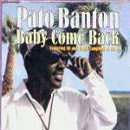 |
|
Pato Banton is a curious reggae artist who has some older songs about certain, uh, smokable substances (No! A reggae artist?) and an odd piece I like called Gwarn, though his recent work is Christian-gospel. Baby Come Back is a 90’s collaboration with the guys from UB40 where the vocals and horns really nail the beat. |
 |
|
I have some rather obscure music on this list. Pau Hana is a Hawaiian artist, and the song perhaps reflects a bit of island xenophobia ("Island girls, keep them where they ought to be"), but it’s a relaxed, tropical rhythm. When I lived in Hawaii for a while reggae was popular and this is a sort of ukelele-reggae fusion. |
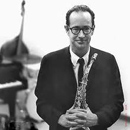 |
|
Brubeck was a steady family man, rare in jazz; thus he lived a long time! Paul Desmond was, however, was what you’d expect of a jazz saxaphonist and had the usual addictions and the usual consequences, dying of lung cancer in 1977. Though Desmond played on Take 5 he also did solo work, resulting in this gentle piece. |
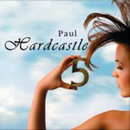 |
|
Paul Hardcastle has had a career as a fusion-jazz player, but he’s best known for his 1985 single Nineteen, with its stuttering sample n-n-n-n-nine-nineteen and commentary about the Vietnam War. The title is based on a documentary claim that the average age of American soldiers serving in the war was 19. It’s a little dated now but an inventive track and very experimental for the time. |
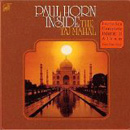 |
|
You can roll your eyes, but somehow the track is close to my heart as it was recorded within days of my birth. Horn somehow got recording equipment into the Taj Mahal and played a flute in that huge, reverberant space. The album became huge and led to a trend of bad new-agey recordings in the late 60’s and early 70’s, but this is the real thing and the sound is still pure transcendence. |
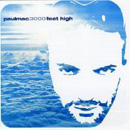 |
|
My Paul entries so far are all lesser-known acts, and I don’t know much about Paul Mac except that he is a music producer in Sydney, and he once was in a band coincidentally called Itch-e & Scratch-e! This track is from 2001 and both the studio and live version have a good club vibe to them, but the live recording has a little more energy and grit. |
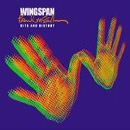 |
|
Alright, well, Paul McCartney isn’t lesser-known. Some of McCartney’s solo work is a little elevator-music-ish, and Linda’s keyboard lines can sound like she was taught by Ross from Friends; but McCartney has so many albums that some of them just have to be great. I like his mid-70’s Wings period, and Listen is a very easy groove. |
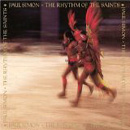 |
|
I’ve only included one Paul Simon track but I could easily have several; Graceland (1985) and Rhythm of the Saints (1990) are both excellent albums which, along with Peter Gabriel, have done a great deal to popularize world music. There isn’t a lot of African hammered percussion in rock and so Can’t Run But definitely deserves a listen. His Central Park live album is also a mood-improver. |
 |
|
Though Weller is a minor British artist he’s been around a while— he was in The Jam and appeared in the Band-Aid charity video of ‘84. This is a beautiful, bluesy, Beatlesesque piece from ‘93 which oddly I wasn’t familiar with until recently. |
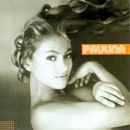 |
|
Another Latina hottie from my days in Mexico, my last Paul is a Paulina. Rubio’s Tal Vez Quiza (2002) "Maybe someday" is a soft ballad rather unlike her faster Mexican crossover pop songs, but it grew on me instantly. Another reason I like slower Spanish songs is that I have better odds at understanding the words! |
 |
|
I didn’t care for Pearl Jam’s early albums, and their oh-so-alternative seriousness has resulted in way too many bad imitations (Creed among them). They got better. Better Man (1994) stretches Vedder’s bassy voice, and Given to Fly from a few years later sees the band becoming bluesier and more mature. "Wishlist" has a phenomenally good solo. They have a reputation for caring about their fans after their protracted fight to keep down ticket prices in the 90’s. |
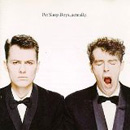 |
|
The Pet Shop Boys had a slightly hokey name but they were one of the better mid-80’s British new wave / pop bands. Their music borders on progressive electronica at times, if that’s a genre— odd song structures with few or no choruses, and lyrics that are more creative than the usual love songs. Dreaming is about an imaginary conversation with Lady Diana, and Violence is about gun enthusiasts, I think. |
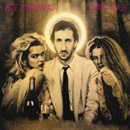 |
|
Pete Townshend is an interviewer’s nightmare and surely one of the most bad-tempered cusses in rock, but he played guitar for The Who and has recorded some pretty strong solo material. By coincidence Give Blood (1996) comes after another anti-violence song, and Let My Love Open the Door (1979) is a funky, electronic groove. For a lead guitarist he has a good ear for thundering synth bass lines. |
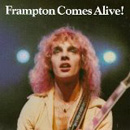 |
|
I used to think that Frampton was an American who briefly became a guitar pin-up poster boy, but he’s a Brit who played for Humble Pie in the early 70’s. You either like his feel-good songs and wailing, wah-wah guitar leads or you don’t, but Frampton Comes Alive (1976) is still the biggest selling live album of all time. His vogue ended when he started experimenting with keyboards in his followup in ‘77, but he’s still around. Credit him for popularizing talking through your guitar (the talkbox). |
 |
|
Awesome, awesome. Gabriel has tried numerous personas, from feral barbarian (what the heck is Shock the monkey about?) to political advocate (Biko) to joking boyfriend (Sledgehammer, Steam). Aging gracefully (Gabriel, not me), I only recently met Father, son (2000), a gorgeous song about Gabriel’s own far-more aged father. Man, if you’re male and this song doesn’t move you there is no blood in you. |
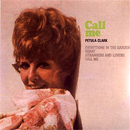 |
|
Petula Clark was a rather "establishment" 60’s British act but had some great songs. I remember falling asleep as a little boy to a call-in show on CJCA Edmonton in the late 70’s which had Call Me as its introduction. The lyrics ("If you’re feeling sad and lonely, there’s a service I can render")—uh, exactly what services?— sound a little suggestive now, but they come from a slightly more innocent time. |
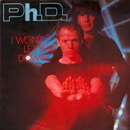 |
|
Gorgeous, gorgeous melody, and a funny video. What happened? PhD had one good album in 1981 and then disappeared, but this song is gold. If you don’t like synthesizers or the 80’s, move on, but when I hear it I’m a teenager reading comics in the back yard again. |
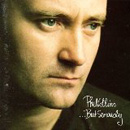 |
|
In some of his earlier solo works Collins was just a slightly poppier Genesis, but later on he comes into his own with some jazz-influenced pop. Sussudio’s bad and In the Air Tonight is way too long, but occasionally Collins’ solo work is interesting and tastefully done. I Wish It Would Rain Down (1989) has the same sort of atmospheric and rumbling bass-synth line as I mentioned Pete Townshend having. |
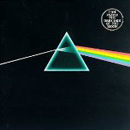 |
|
Some unjust providence decreed that radios would favor The Wall (1979), one of the most grating and overplayed albums in the history of the world, and neglect Dark Side of the Moon (1974). Time is just one of the best songs ever recorded with its cold, elegant beauty and contemplative lyrics. Dogs of War is an angry song and has a biting, spiky edge to it. Music that audiences will respect in future centuries. |
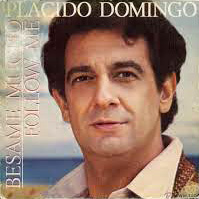 |
|
Yes. Yes. Bring on the cheese. And the ‘70s strings and brass section, with the bubble machine and fondue pot, and the disco break. Domingo was a Spanish heartthrob but he does have a majestic voice, and he swings this classic song. |
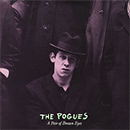 |
|
I’m not sure what to make of The Pogues. My Irish friends worship them and break out into song over them, but many of their songs sound like the singer is drunk and slurring the words and pitches, just like Springsteen and Dylan sound to me. But they are good tunesmiths with traditional Irish instruments, and they have a wonderful folky sound without any pretentiousness to them at all. Perhaps all the songs about beer rule that out. |
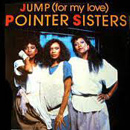 |
|
Okay, there’s some cosmic humor in the Pointer Sisters being sandwiched between Pink Floyd and the Police, and future musicologists probably won’t lionize Jump (1984), but it’s a fun song all the same and rather wallows in the excesses of early 80’s synthesizers. The Girls Aloud version from Love, Actually isn’t bad, but lacks the earthy funk and sparkle of the original. |
 |
|
I also think highly of the Police. They were so far ahead of their time with their complex soundscapes and learned lyrics. Early Police in the late 70’s is funky and reggae-infused; their later albums in the early 80’s are more progressive and symphonic. Sting can take himself a wee bit seriously, but the level of composition is so high he can be. Walking in Your Footsteps is about dying dinosaurs as an allegory for nuclear extinction. Not a lot of Justin Bieber songs about that topic. |
 |
|
This song, from 1998, has been variously categorized as ‘Trip-Hop’ or as a sort of proto-rave or British house song, and I’ll stop now as it just makes me sound old to try to taxonomize this. It has a slow, delicate riff that is both sparkly and thumpy and is very hypnotic, and the vocals have an intimate sound. That’s enough description. |
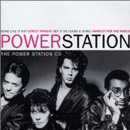 |
|
Power Station was a one-off project formed by some of Duran Duran and Robert Palmer—because Palmer didn’t have enough hits in 1985. The heavily compressed sound on the drums and the crunchy, staccato guitar stabs border on metal at times and must have been a break from Duran Duran’s ornate electronic sound of the time. I just picked this song because it’s something different from Get It On (Bang a Gong). |
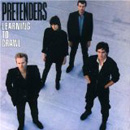 |
|
I grew up with the Pretenders, and they are one of my favorite 80’s bands. When Learning to Crawl came out in ‘83, I think it is the only time in my life I bought an album the first day it came out, unheard. So much of their music still sparkles, from their early punk-metal work to their jangly, countrified sound (Thumbelina), interspersed by their brief keyboard and orchestral style (When I Change My Life, 1986). |
 |
|
Primus, like the Police, give me an eerie feeling that I’m listening to music from the future. They’re impeccable musicians making the strangest bloody sounds on earth that are uncategorizable. Is it progressive California surf music or psychadelic jazz? Wynona’s Big Brown Beaver (1995) sounds both sexual (maybe) or a joke on Winona Ryder (it isn’t), but the bizarre vocals probably are just the band’s usual playful weirdness. |
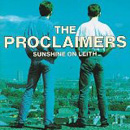 |
|
The Proclaimers are a Scottish guitar duo that have been around over twenty years, but most people know them for their ‘88 hits 500 Miles and I’m On My Way (more like Ai’m un me wee) with its crooning, accented vocals. Again, I’ve just picked something different with this more soulful, spiritual-sounding piano ballad. |
 |
|
Best. voice. in. rock. evar. No one sings or has the stage presence, or the flamboyant, over-the-top style of Freddie Mercury. There’s so much more to Queen than bloody Bohemian Rhapsody, from their glam period to their proto-metal period to their orchestral keyboard period. Pick any album from the late 70’s on and it’s a feast, with Brian May’s heavy, soaring solos cutting against Mercury’s flying vocals. My own favorite is Innuendo (1993), a masterful coda to a career still too short. |
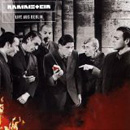 |
|
Music to play when you’re in a bad mood, I guess, or when you’re trying to get your aggression levels up to go to the club! Not many bands can have such thunderous, crunching guitar riffs as Rammstein did in the late 90’s and still nail their songs down with such controlled, methodical rhythms. And the German lyrics just make everything sound that much more ominous and threatening (best not to know what they’re about). |
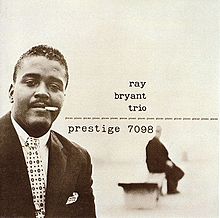 |
|
Apparently Ray Bryant is a classic-jazz era pianist going back to the ‘50s, who had a five-decade career. I feel a bit bad now for choosing what was probably one of his lesser and cheesier tracks, which has a 70’s era synthesizer lead and Latin-esque groove. Still, it’s an enjoyable groove. |
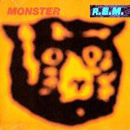 |
|
The sometimes vapid lyrics and the band’s pretentious fans make REM a sort of genre of their own, but at times they have a really solid melody and put together a well-crafted song. Day Sleeper (1999) is a gentle, thoughtful song, one that makes good use of Michael Stipe’s wandering, warbling vocal style. |
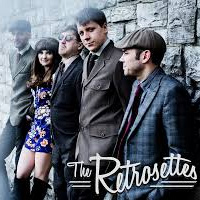 |
|
I don’t know much about these guys. Their website indicates them as "the UK’s leading vintage themed party band," and they seem to be a Motown-era tribute sort of act. But it’s well done, and if not for the modern sound quality this could easily pass for an older recording. It’s a catchy track. |
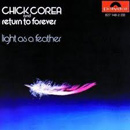 |
|
You can find 70’s fusion-jazz hokey and dated, and consign it to the closet with the fondue pot, but to me it’s a type of jazz that’s both highly skilled and complex and also a little playful with its inventive use of electric pianos and early synthesizers. This is an extended jam from 1977 driven by Chick Corea’s keyboard solos and a lot of brass and bass guitar riffing. |
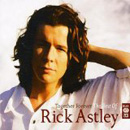 |
|
Okay, really? Yes, really. Mr. Never-Gonna-Give-You-Up actually grew up into a pretty fair musician, and it’s a shame people were so sick of his ‘87 sequenced dance-cheez album that little attention was paid to his followup not-really-that-bad-actually album. Rick Astley gets extra points for being a good sport over the recent Rickroll craze, and like Rod Stewart with his disco phase, probably wonders what he was thinking at the time. |
 |
|
Apparently, You’ve Lost That Loving Feeling (1965) has been played 8 million times, the most-played song in history (as opposed to We don’t neeed no eduuucation, which only feels like it’s been played 8 million times). This and Unchained Melody was basically their career, but it helped establish Phil Spector’s wall-of-way-too-much-reverb style, and not many men have tried to impress a girl in a karaoke bar without these songs! |
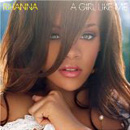 |
|
If you can stomach the irritating hip-hop opening of the song, when it kicks in there’s a great synth-bass groove and Rihanna has a powerful voice that stays on the note, quite immune from Mariah Carey disease. I hope she’s still around in 20 years so she can take over from Shirley Bassey. Rihanna’s certainly easy on the eyes, but even so the video is artfully photographed. |
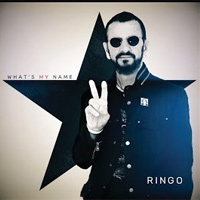 |
|
Poor Ringo. If he weren’t always being compared to the other Beatles, he would be a perfectly respectable classic vocalist and drummer in his own right. I’ve always liked his music, and he was fun to see live. This is one of the sweetest songs I know, pure honey. It is destined to be a first-dance wedding song, and no one can sing it as earnestly and without ironical aloofness as Ringo can. (It was, however, written by Lennon.) |
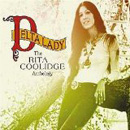 |
|
Rita Coolidge is not well-remembered now, but she was big in the early-mid 70’s with her laid-back vocal style and was even on a James Bond soundtrack. She’s generally known for her easy-listening cover versions, such as We’re All Alone. This song is a little obscure and I’ve yet to find a digital version, but it has a slightly Motown sound in the bassline and piano backing. |
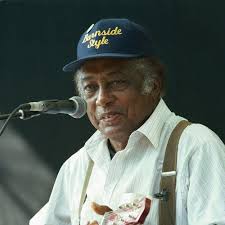 |
|
There’s no slickness here. This is rough, muddy, unvarnished blues. When I hear it, I’m in my fantasy "southern blues" nightclub where there’s sawdust on the floor and jambalaya and grits being served as the band plays over ancient tube amps. Burnside doesn’t seem like a celebrity, and there’s pretty minimal singing in his tracks. His guitar does his singing for him. |
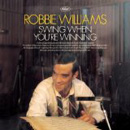 |
|
Robbie Williams seems like an eccentric entertainer and was a bit of a British Ricky Martin meets Frank Sinatra in the late 90’s with his girl-candy looks and overproduced brass-section singles. Angels (1999) is an unusually intimate song for him with its sparse, crisp piano arrangement and the haunting vocal line. |
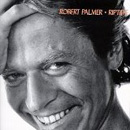 |
|
I never knew whether Robert Palmer was in on the joke or not when people were laughing at him in the 80’s for his corny, interchangeable videos with identical Teutonic women pretending to play instruments behind him. Palmer seemed to have the confidence to pull it off, and had a respectable string of reggae-pop albums in the 70’s. These two singles are from Clues (1980), a good mix of his soulful voice and spiky synthesizers. |
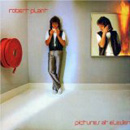 |
|
It’s too bad a death had to end Led Zeppelin, but on Plant’s first solo album in 1982, Pictures at Eleven, there’s a real feeling of liberated freshness in the songs and in Plant’s voice, backed by Phil Collins on most of the tracks. It’s a great album. I like Plant but I thought he had run out of ideas by the late 80’s, to the low point where on Long Cool One he’s sampling his own voice from old Zep songs. At least he’s singing on his Honeydrippers project. |
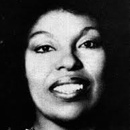 |
|
Flack’s 1972 track here still sounds new and beautiful, and must have been used in countless wedding dances. It’s gorgeous. I don’t know many performers who sing with that sparse honesty anymore. I had a monumentally difficult coworker once in Mexico who was a fan of hers, and it turned me off of Roberta Flack for years. I regret treating her so badly and regret avoiding the music because of it. |
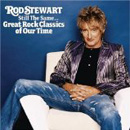 |
|
Rod Stewart, alternatively, had his dignity nadir in the 70’s with disco fluff like Hot Legs and Do Ya Think I’m Sexy? He put himself back on the road in the 80’s with some decent old-school pop albums, and Baby Jane is a good groove. Stewart has aged into a sort of 21st century Andy Williams with his lounge-cabaret albums, but it fits his voice and he’s still loved by his original generation of fans. |
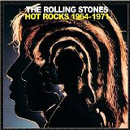 |
|
I shouldn’t need to defend having the Stones here, a band which defines everyone’s mental image of the rock ‘n’ roll lifetyle; I guess it’s just a matter of saying why I chose the songs I did. I like their Exile on Main Street - early 70’s period best as they were maturing but still in touch with their blues and country roots. They’ve become somewhat of a joke in the last twenty years and I half-wish the band would give up embarassing their legacy in order to sell just one more batch of tickets. |
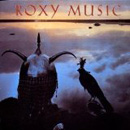 |
|
Roxy Music was a 70’s British punk band known for Love is the Drug and their suggestive coffee-table album covers. I have a hard time classifying them with the Sex Pistols as their sound became more like lounge-punk; edgy lyrics with slow, dreamy tempos and crooning vocals. Avalon (1982) is still a masterpiece for its mature, orchestral keyboard soundscapes but Bryan Ferry sounds nothing like punk. |
 |
|
As I said earlier, I have little love for my country, but you should never insult a Canadian’s beer, donuts, or Rush. They are admittedly a little like the Stones in that you wish they would retire gracelessly already, but late 70’s and early 80’s Rush is incredibly good. Tom Sawyer (1980) and the other tracks I’ve chosen are complex, driving, fascinating songs—all the intelligence of progressive rock with none of the self-indulgent noodling or airy lyrics. For technical proficiency, Neil Peart outdrums Keith Moon. Unmissable. |
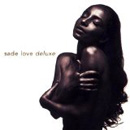 |
|
Sade (Shah-day) isn’t played much anymore, and that’s too bad; she has the most soulful, sexy, breathy voice. Most of her albums are a sort of easy-listening jazz style heavy on saxophone and bass. I tend to like music with a lot of atmospheric keyboards and a strong bassline, and Cherish the Day (1993) has a hypnotic groove. The SNL live version is good too. |
 |
|
Camille Saint-Saens wrote more "serious" pieces and wasn’t fond of his own Carnival of the Animals (1886) symphony, which he apparently wrote in fun. He might not be pleased that it has become his best-known work for its simple charm. He might wish you to listen to Dance Macabre (1908) instead. Oddly, the Nazis prohibited his music as "Jewish," even though he wasn’t. |
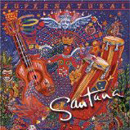 |
|
Everybody with an Arts degree says they like Santana— it’s a sort of rule—but I admit a twelve-minute guitar solo can get wearisome. Dance Sister Dance is from Amigos (1976) but I prefer the various live versions from the decade after. This version has a silky keyboard solo and a wonderful Latin rhythm section, and the guitar solo is jazzy and under control. It’s one of my favorite songs. |
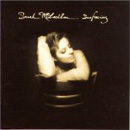 |
|
Sarah McLachlan was a forerunner of the arty, angry-white-chick movement of the 80’s in Canada, and her angsty, slightly constipated look in concert could occasion a little eye-rolling. The Lilith Fair trend has thankfully passed, but I do think McLachaln is a good songcrafter, and Vox (1988) is a strong early song with her operatic voice and slightly Caribbean groove. Adia is a beautiful piano ballad also worth hearing. |
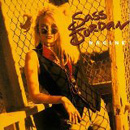 |
|
Yet another Canadian, Sass Jordan is a bluesier, heavier version of Alanis Morissette. Jordan had a wretched pop-dance album in ‘88, but Racine (1992) is folkier and Rats (1994) is almost classic rock with her rough, Janis Joplin voice and crunchy guitars. Ugly is a snarling thrash of a song. She seems fun. I made her crack up in concert in St. John’s on Halloween 1996 when I tipped my Viking helmet to her and she noticed me in the crowd! |
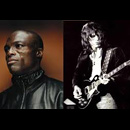 |
|
I have a lot of Hendrix covers here, and they’re often better sung than the originals; even Hendrix was dissatisfied with his voice, alright? Jeff Beck does a masterful job on Manic depression and you can hear him do these wonderful tiny bends and tremolos while Seal rumbles and roars through the vocals. Great stuff. |
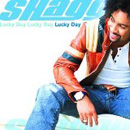 |
|
My friend Alisdair once said, who except Shaggy can sing all these songs about cheating on your girlfriend in broad daylight and have women not only adore you but sing along? Everybody at a nightclub always thinks they’re Jamaican for a few minutes when he’s played, and it’s a likeable mix of reggae and hip-hop. He has a sense of humor in his leggy videos and that’s a plus as well. Both songs are from 2001. |
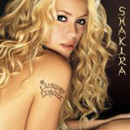 |
|
Apparently, yes, all Columbian women are smoking hot; a co-worker of mine was once seated on an airplane in front of her and remarked how tiny she was as well. I don’t like Shakira’s recent English albums and her hip-hop melanges. Even if it makes me sound snobby I like her 90’s Spanish albums as they sound more authentic. Ciega Sordomuda (Blind, deaf, mute, i.e. is what I am under your spell) has a wonderful Latin rhythm and a trumpet solo that doesn’t sound like a rap sample. Ojos asi (Eyes like those) has a kicking arabic feel. |
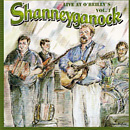 |
|
Shanneyganock is a Newfie band and the recording is from a 2000 performance at a St. John’s bar named (surprise, surprise) O’Reilly’s. As I keep saying, Newfie music is fast, jigging, percussive music with lots of fiddles and accordions. Good music makes you wish you were somewhere else for a moment, and for a few minutes I’m a sailor leaving St. John’s harbor with a mug of ale. |
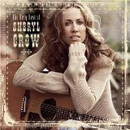 |
|
A lot of music is tied up for us in the memories of what and where we were at the time. Sheryl Crow is an American rock-folkie, but I associate her with being in a bar in Newfoundland. I always hear a chirpy optimism in her voice and so I like her uptempo songs better than her ballads. Winding Road (1994) is a happy tune with a slide guitar riff, and All I Wanna Do still sounds new when I hear it. |
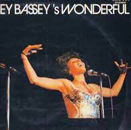 |
|
Good grief—Welsh Shirley Bassey has had a nearly fifty-year career. What a powerful voice. Here she covers Gershwin’s S’Wonderful (1959), demonstrating that I’m not above a show tune here and there, or a little soft-shoe. And you know, is there any crime in the occasional bubble machine? |
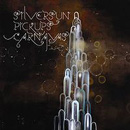 |
|
This band and album are only a few years old, and I confess I learned about them from playing Rock Band. I like the soaring, hypnotic groove of the song and the way the vocals cut in and interleave with the vibe. They’re also here to show that I’m still hip and relevant to the young people of today. Why, I even have a subscription to Time magazine. |
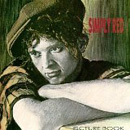 |
|
I saw a Much-Music interview with Simply Red’s Mike Hucknall in the late 80’s where he was oddly sullen and hostile, and their early work often has an easy-loungey feel but with angry or political lyrics closer to punk; Money’s Too Tight to Mention is a gentle melody ending with a vicious sexual insult on Ronald Reagan. Sunrise is from 2001 and in later years the band is becoming more romantic, although there’s still the quirky choice of basing a song on a Hall & Oates sample. |
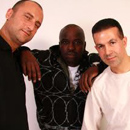 |
|
I suppose this is another odd choice, but it’s good to continually stretch your tastes. SL2 is a sort of electro-reggae-dub trio from London, and this song somehow reminds me of Paul’s Boutique by the Beastie Boys if they were into reggae. Either you will like it or it will give you a headache. |
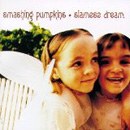 |
|
It took a a few years to get into the Smashing Pumpkins. Billy Corgan has an odd, screechy voice and the music style is a little inaccessible—progressive grunge? Now I can see what a breath of fresh air a raw, crunchy song like this was in 1993 after five years of Jody Watley remixes. Over time the band got heavier and Adore (1998) sounds half like nursery rhymes and half like a Matrix soundtrack album. Good or bad, I know no other music quite like these guys. |
 |
|
Snakehips is an English electronic duo, and seems to be mostly known for this song. It sounds older to me, as though it comes from the late 90s Cool Brittania days. This isn’t a bad thing, although it makes me feel old if that sound is now retro. |
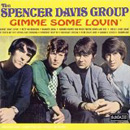 |
|
The mid-60’s seems like late pleistocene in terms of rock music, and it’s hard to believe Steve Winwood is still recording. Here he’s quite young but there’s still that soulful voice and the bluesy keyboards and guitars. Early British rock is odd in that the Brits borrowed more from American blues music than US rock bands did, and Winwood sometimes sounds like a black gospel singer. |
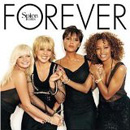 |
|
What’s so bad about the Spice Girls? Okay, the ‘Girl Power’ marketing shtick. The pin-up posters. If You Wanna Be My Lover. But even the Monkees had to sooner or later have some decent songs, and the same applies here. 2 Become 1 (1998) has a strong melody, and Viva Forever is a beautiful, haunting piece from their goodbye album. Too bad they ended when they were getting so good at vocal harmonies. |
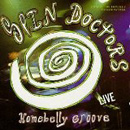 |
|
There was a sort of retro-hippie fad when grunge was new in the early 90’s, with tie-dyed shirts and goatees, and this is one of the best bands out of a not very strong lot, I guess; I don’t know how many people listen to EMF lately. I like it because it’s kind of a clever idea to write a song about Superman’s girlfriend from a junior reporter’s perspective. |
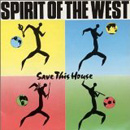 |
|
Spirit of the West is a Vancouver band that actually signed with a minor Edmonton label, and If Venice is Sinking is a 1993 track about liking the city so much you want to sink with it. Their music mostly sounds like Irish folk-rock with its fiddles and accordions, and I was surprised to hear where they’re from; it’s as if you found out the Pogues were from San Diego. |
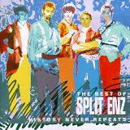 |
|
Split Enz is an underrated band, and these Kiwis were big in the early 80’s with What’s the Matter With You? As I said earlier, the band later evolved into Crowded House, and here they still have their Beatleseque sound but have a slight punk / new wave edge. Six Months (1982) was controversial as people believed it mocked the Falklands invasion, but it’s simply an adventurous song about the early settlers of New Zealand. The keyboard arpeggio makes you think of sailing and I have no idea why. |
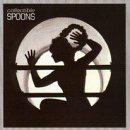 |
|
The Spoons were an Ontario band which went out of style along with the rest of new wave in the mid-80’s, but in their prime they had some strong singles. Nova Heart (1982) was a staple at my junior high dances, and I still like the ominous, growling bass lead. For their time they had well-made rock videos, and the slow-motion, color-saturated look of Nova Heart is haunting. Tell No Lies is a very funny video. |
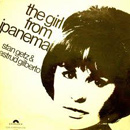 |
|
What’s a website without some bossa nova? The 1962 original was apparently about a real girl in Ipanema, a neighborhood of Rio de Janiero, but the more famous version is by Stan Getz and Astrud Gilberto in 1964. A very pretty song, and Gilberto’s untrained voice and wobbly English actually give it personality. The song has unfortunately become elevator music that even elevators shrink from. |
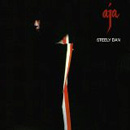 |
|
Like his solo work as Donald Fagan, Steely Dan was known for studio precision, and the records sound very professional. The sound is east coast, with lots of crooning harmonies, jazz chords, and funky brass sections. Peg (1977) is a soulful ballad that almost sounds like the Doobie Brothers, except that if you listen to Steely Dan you realize that their tracks are not really love songs. |
 |
|
The Steve Miller Band is fixed in my mind as a classic 70’s band with their country-rock mix and Miller’s percussive electric lead sound. When I was a teenager they were a favorite at my brother’s bush parties in the mid-80’s; they tried a comeback in the 90’s and it just didn’t seem to fit for me. Swingtown is an early song with a rootsy, snappy beat and a synthesizer solo. Money and run has a funky, fast syncopation. Good times. |
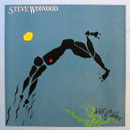 |
|
Winwood took on a rockier, big-band brass sound in the late 80’s and early 90’s, but in 1980’s Arc of a Diver the songs are more poetic and personal, and the music is accordingly strong on atmosphere and melody. Spanish Dancer has a gentle rhythm, and not many people could make synthesizers sound as joyful as they do in the title track. It’s not party music, but it will improve your mood. |
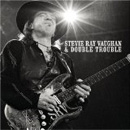 |
|
Pride and Joy is from Stevie Ray Vaughan’s debut in 1980, Texas Flood. Imagine a parallel universe where Vaughan and Hendrix would play together! Vaughan doesn’t use much distortion, but his playing sounds so full and bottom-heavy that it fills out the whole spectrum, and on other songs he’s alternatively country twangy and plucky. The terms will make sense when you hear it. |
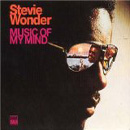 |
|
I’m really sick of I Just Called To Say I Love You (1984), and wish radio stations would play some of Stevie Wonder’s earlier tracks, with their wide variety of funk, jazz, and fusion influences. Thus I was surprised to find that Overjoyed is from a year later. It’s a beautiful piano ballad showing Wonder’s mastery of melody and atmosphere. The earlier tracks are all wonderful standards. |
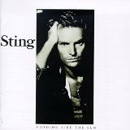 |
|
Pop and rock are not meant to be intellectual art forms, and sometimes Sting’s learned lyrics can be awfully pretentious. Still, his first solo album in 1985 has four classic songs and proved Sting wouldn’t fade away after the Police. Seventh Wave is a philosophical song bordering on spiritual, but has a bouncy, childlike rhythm, and the video of children’s drawings is a perfect match for the track. |
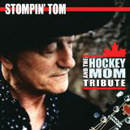 |
|
Stompin’ Tom was a sort of Canadian novelty act in the 70’s, and you can tell someone’s age pretty fast if they know the lyrics to Margo’s Got the Cargo. Bud the Spud is a hopelessly time-and-place specific country-folk song about a trucker taking contraband potatoes across provincial lines from PEI to Ontario. For the few people who know all the references it’s really fun to hear his songs. |
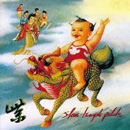 |
|
There was no shortage of Pearl Jam grunge imitators in the early 90’s, and a few of them even had talent. STP was a little heavier and less political, and Interstate Love Song has almost enough slide-guitar and electric-folk influence to sound like the Black Crowes. None of this is a criticism, and in fact they’re my favorite of the three. Lady Picture Show is great too. |
 |
|
Jorge Strunz (Costa Rica) and Ardeshir Farah (Iran) are an unusual mix but their fusion-guitar duo sound results in some beautiful pieces. This live track from 1995 is the sort of performance where you hold your breath for a moment, and then tell the girls, "This is me playing the guitar." |
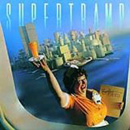 |
|
Apparently, an eccentric Dutch millionaire who basically wanted his own band backed this British group in 1970. After a few awful prog-rock albums they started to improve, and Breakfast in America (1979) is their best work, with Roger Hodgson’s crooning vocals and music heavy on saxaphones and keyboards. Hodgson left not long after, but I once heard a local radio DJ say that he was the kindest rock star she had ever interviewed. |
 |
|
The Supremes are such a classic 60’s Motown group, despite the fact that they changed band members more often than changing socks, that to me it’s a little dull to put staples like You can’t hurry love on here. Diana Ross had a great growly voice and Itching in my heart has a hard, earthy rhythm that I first saw on an Ed Sullivan rerun. |
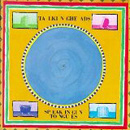 |
|
Most people in my age group remember the Talking Heads’ Once in a Lifetime video ("Same as it ever was.. same as it ever was.."). Like Kraftwerk, the band doesn’t look 1/5 as funky as it is, and their late 70’s-early 80’s work in New York has a really strong groove and lots of squeaky, jumpy keyboard solos. These two selections are long songs, but they have such hypnotic, dancey rhythms to them. |
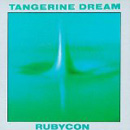 |
Tangerine Dream - Girl on the Staircase
|
Tangerine Dream is a "Krautrock" electronica band from the early 70’s, but their style has little in common with Kraftwerk other than being totally keyboard-based. Tangerine Dream was influenced more by modern and experimental classical composers, and their songs tend to be extremly long, atmospheric pieces with little or no percussion that are often used in film soundtracks. White Clouds has a little more groove to it. They’ve released over 100 albums! |
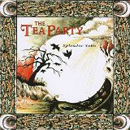 |
|
Yet another 90’s Canuck act, the Tea Party’s vocalist sounds a lot like Jim Morrison, but they’re more of a psychadelic-electronica-hard rock band, if my categorizations still make any sense. I’ve seen them live, and it’s electrifying to see them switch between all sorts of exotic western and Arabic or Asian instruments. These two songs are typically complex and orchestral, and their later work became heavier on synthesizers. When I was in a band we tried to play the Tea Party and gave up. It’s difficult music. |
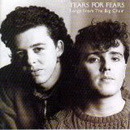 |
|
Tears for Fears is a new wave band from Bath, and they’re mostly known for their 1985 hits Everyone Wants to Rule the World and Shout. Their output has been spotty as the two don’t get along, but the single I’ve chosen from 1992 is from later in their career when the songs are a little mellower and less cynical. |
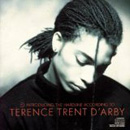 |
|
One thing about human nature is that we’ll forgive almost every moral infirmity in a rock star—heck, we love moral infirmities and delight in tales of groupies and pianos thrown into swimming pools—but we don’t forgive pride. D’Arby might have been a solid Motown-esque crooner until he claimed his album was better than the Beatles’ Sgt. Pepper, and it was all over. Still, Sign Your Name (1988) is a lush and beautiful piece. |
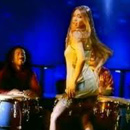 |
|
Okay, everytime I introduce a Latina I comment on her being attractive, so I’ll just assume it’s a given from now on, alright? Thalia has a slightly rockier, brassier sound for Mexican pop and this track has a particularly aggressive sound to it. But it’s still a Mexican pop song, which means that every verse has to end with "corazon" (heart). |
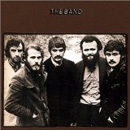 |
|
The Band is a peculiar but immensely well-respected band from the late 60’s and 70’s. They were supported by and played for Bob Dylan, despite the fact that they had talent and could sing, and later struck out on their own. Despite the band’s Canadian roots, they have a soulful mix of country and southern gospel blues on their albums, and their music influenced both the Counting Crows and Black Crowes. |
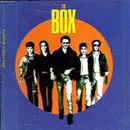 |
|
There aren’t a lot of Quebecois new wave bands, and The Box’s songs aren’t easy to find online. Canadian French is a little more aggressive sounding, and the vocal style has unusual accents in their songs. My Dreams of You (1984) has their tight electronic sound, and later albums sound a little rawer—Sass Jordan came to prominence as a backup singer for the band. |
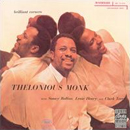 |
|
Genius. A great jazz album by pianist Monk, who stretched the limits of jazz in 1957 with his dissonant harmonies and odd twists of timing and melody. Even with the master players in his studio the title track was so difficult to play that it had to be put together from multiple takes. I like Brubeck but Brubeck was not as wild or experimental as Monk was. Also check out Consecutive Seconds. |
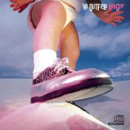 |
|
The Outfield had modest success in the states and was almost unknown in their native England. They were biggest in the mid 80’s and then faded, but this track from 1989 still has their ringing, jangly tone and their haunting, reverbed vocal style. |
 |
|
The Postal Service is an indie band, and I was pleasantly surprised to see a well-known band operate outside the usual music business conventions. Such Great Heights (2003) has a photogenic video and has their usual peculiar mix of retro Moog-era keyboard sequences and Ben Gibbard’s delicate vocal phrasings. Apparently, initially the real US postal service was less than impressed with the name. |
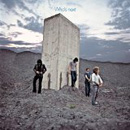 |
|
For years the Who didn’t get no respect except from an older legion of fans, but they seem to have made a comeback lately as people rediscover their proto-punk energy, screeching guitar solos, and Keith Moon’s sugar-crazed octopus drumming style. Oddly, they adopted synthesizers into their attack strategy early on, as here in 1971’s Baba O’Riley (which is not called "Teenage Wasteland"!) The Who declined after Moon’s death in 1978, but Eminence Front is a late single with an aggressive, orchestral groove. |
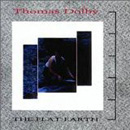 |
|
When I first heard She Blinded Me With Science (1983) I thought Dolby was a sort of new-wave novelty act with his ‘crazy scientist’ video. Throughout the 80’s Dolby built songs out of samples and keyboard effects like a child with Lego bricks, but The Flat Earth (1984) is a song and album that occasionally has the maturity and intimacy of a jazz group in a small club— all playing sampling keyboards, of course. Two of these are later 90’s tracks. |
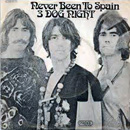 |
|
Early 70’s country-rock Three Dog Night screams "in your dad’s 8-track tape collection" and is accordingly rather bloody square (a song comparing Oklahoma to heaven?) but it has a non-ironic innocence to it, I guess. The twangy guitar solo isn’t bad either, and if you didn’t know the language the vocal line would have almost a gospel sound to it. |
 |
|
Timber is a Newfoundland college-rock band which was big around 2000 when I lived in St. John’s. It is not conventional Newfie music as is straight-ahead pop with no traditional instruments. Regrettably, I can’t put the whole song online and I know little about the band; but this is a taste until I can find some links for them. |
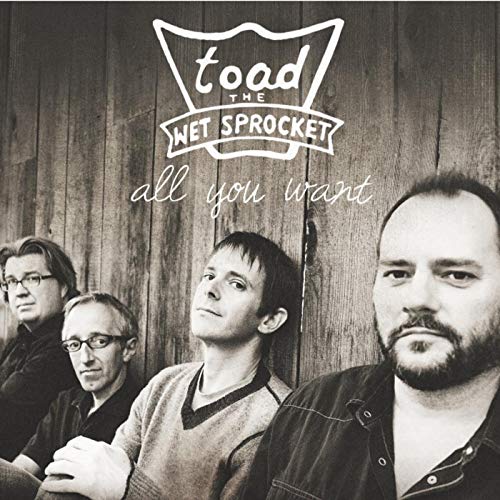 |
|
Named for a Monty Python skit, Toad the Wet Sprocket is an American band that’s been around since the ‘80s. To me they sound less like Hootie and more like a northern England 90’s band for their sparse arrangements and snappy drum sound. Some really nice harmonies on this track. |
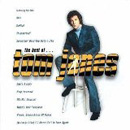 |
|
There’s good cheese and bad cheese, and Welshman Tom Jones is the former; all you can think about is Carlton from The Fresh Prince doing the squarest dance imaginable to It’s Not Unusual and still liking the song. Help Yourself (1968) has the usual Spartan restraint and subtlety we associate with a Las Vegas act, but it’s a fun song and doesn’t pretend to be anything more. |
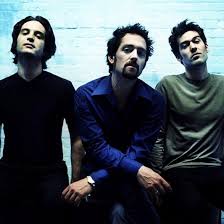 |
|
Most people know "If you could only see," but I’m tired of that song, and this one is better. It’s pretty crunchy, and has enough heavy guitar to enter the territory of near-90’s hard rock, with an I Mother Earth or Pearl Jammy sound. "Casual affair" is an interesting lead line and has a nice amount of rhythmic aggression to it. |
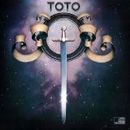 |
|
Toto was a fairly safe, Grammy-winning pop band in the early 80’s with hits like Rosanna and Africa. I guess I like songs with steel drums. The percussion and African rhythms give the song a warm foundation, aided by the vocalist’s soulful delivery. Toto was always low enough on the radar that I don’t usually meet someone who hates the band. |
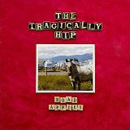 |
|
I was never a big Hip fan; so often in the 90’s I had the feeling that somehow it was my Canadian patriotic duty to praise them, when a lot of their lyrics are only relevant in central Ontario. But when I saw them on their last tour in 2016, I had to admit they were fantastic live, and some of their songs make sense to me now. Courage (1992), a straight-ahead rocker, is based on the existentialist musings of author Hugh McClennan. Flamenco, with its dreamy jazz feel, is about.. well, I’m not sure, but I like the sound painting it makes. |
 |
|
Drops of Jupiter (2001) is an alternative rock song about a lost lover returning, or not, and the singer’s slightly sarcastic questions— I like the gospel organ sound and the bluesy, busy vocals. Then the song rises into a faster tempo and a lush string section. They’re a San Francisco band that’s still recording. |
 |
|
U2 can be pretentious and some people find it fashionable to hate them. To me, they’re hit or miss—some of Pop is unendurable filler, but I would call The Joshua Tree (1987) the best album of the 80’s. The songs I’ve picked here are from that album and their next two, what I think is their best period, when U2 was starting to play with electronica but still had their traditional roots. I still find Until the End of the World (1991) a terrifying and epic song. |
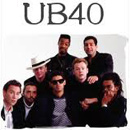 |
|
Well, one of my problems with reggae is that there isn’t much to do after you’ve heard Marley. How many songs can there be with the same chunka-chunka guitar and bass style? UB40 does about the best it can to stretch with some snazzy horn breaks and Grooving’s cool, uh, groove. Anything to avoid hearing Red, red wine for the umpteenth time. |
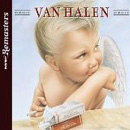 |
|
You can’t talk about Van Halen without answering the big question: David Lee Roth or Sammy Hagar? I admit that over time I like Hagar’s voice less and prefer Roth’s over the top vocal style. A California proto-metal band just shouldn’t take itself too seriously. What’s also overlooked in Van Halen is how good the other members are, and their live version of Unchained is, well, unchained. |
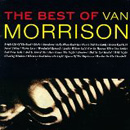 |
Van Morrison - Tupelo Honey
|
I won’t have much to say on Van Morrison because he’s kind of a mini-Bob Dylan. He’s full of himself and nobody’s allowed to not like him. If I have to hear Brown Eyed Girl one more time and pretend that it’s fresh and timeless I’m going to vomit. But I’m going to pick Wavelength (1978) because it’s less well known and has a cool synthetic groove to it that contrasts well to Morrison’s bluesy voice. |
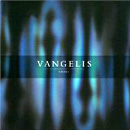 |
|
Vangelis is best known for his Chariots of Fire score, but he’s done many others, including The Bounty (1984)—my favorite movie—and Bladerunner. Vangelis, with sometime partner Jon Anderson from Yes, has had a large discography as an electronic composer, and this song, The Little Girl of the Sea is a pretty sophisticated and advanced synthesizer composition for 1970! |
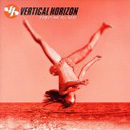 |
|
There was a trend in the late 90’s for bands with Extremely Sensitive Men™ getting in touch with their feminine side through narcissistic love songs. Vertical Horizon’s material can be introspective but they have strong, percussive melodies. Best I Ever Had (2000) is a beautiful piece, and Everything You Want is less romantic but grittier. |
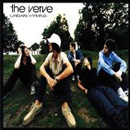 |
|
The Verve is another Extremely Sensitive Men™ band, and again I’m letting them off the hook because emotional doesn’t have to mean wallowing in self-pity, and the songs don’t do that. Lucky Man (1998) has a lush string section, and Drugs (the song is not about narcotics!) is a sadder song but has a soulful tone to it which builds into some swirling vocal phrases at the end. |
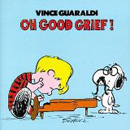 |
|
Guaraldi had a respectable bossa nova jazz career before he started recording for the Peanuts animated TV shows. His Oh, Good Grief! (1968) album is fairly innocuous light piano jazz with some boxy bass and drum rhythms, and you either like it or you don’t. I love the brassy, funky warmth of the later tracks. The 80’s Peanuts shows had other musicians as Guaraldi died in 1976, but they don’t sound nearly as fun. |
 |
|
Vivaldi lived in the early 1700’s and was a Venetian priest in addition to composing. His Four Seasons pieces inevitably turn up on classical hits CDs, and so I’ve tried to seek out other works as well. Classical music was still played for smaller and more aristocratic audiences in Vivaldi’s time, and I find his guitar pieces really intimate. I even heard this concerto scored for mandolin once live and it sounded wonderful. |
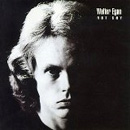 |
|
Apparently, Walter Egan is a teacher now. There is some odd connection between ex-rock musicians and educators. Egan didn’t have many hits, but Magnet and Steel (1968) is a gentle ballad with heavy backup vocals, and it has a 50’s rock feel. The album was produced by Fleetwood Mac’s Lindsay Buckingham, and I guess you can hear an influence. |
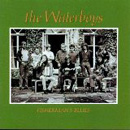 |
|
The Waterboys are another Irish-folk band from the 80’s, but their style is "big", with a Phil Spector sort of sound. Fisherman’s Blues (1988) isn’t a sad song, but it feels mournful with the tortured vocals and the haunting fiddle solo. This is when I picture people not jigging anymore and sitting reflectively with their Guinness. |
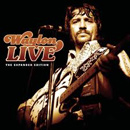 |
|
Such a cool song, and such a tight, snappy backing band—there’s so much going in the guitar solo that I want to move to Texas and sit in front of a smoky stage with a tall hat on Saturday night after the barbecue. Alberta with pleasant weather and friendly women. It’s a good musician when you wish you had more than one life so you could live the one in the song. |
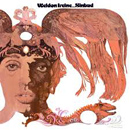 |
|
I’m not familiar with Weldon Irvine, though he was fairly well known in the New York circuit as a black funk musician and Nina Simone’s bandleader. Sounding here a little like Herbie Hancock, there’s a nice synth-bass line and ARP string section, as though he’s trying out for a Peanuts special. Great, smooth sound. |
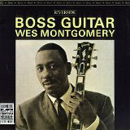 |
|
Jazz guitarist Wes Montgomery had a prolific career and was very influential, and until I looked him up I didn’t know he was recording from the 1940s to the 60’s. Impressions (1965) comes near his death and shows Montgomery becoming poppier and heavier, and he’s a fast, intricate picker on an electric guitar. |
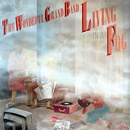 |
|
WGB, Wonderful Grand Band, is an Newfoundland group which had two albums around 1980. I only know of Sonny’s Dream, a wistful Irish ballad about a son whose life passes him by as he cares for his abandoned mother. Not a happy song, but I’m told it’s so beloved in outport Newfie towns that people stand on tables when it’s played. |
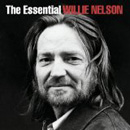 |
|
Willie Nelson is a sort of poet-laureate in Texas, despite his odd career—in his old days he’s clean-shaven, and later he became a kind of hippie country outlaw. Blue Eyes Crying in the Rain is a classic, but I’ve chosen here some poppier, early 80’s tracks that he did with other players. This is classic, genuine country, as opposed to New Country with its nasal singing and line-dancing twaddle. The older I get the more I like and respect him. |
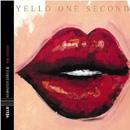 |
|
Yello is a Swiss electronica band known for their song Oh Yeah from the Ferris Bueller film in 1985, but they’re not a novelty act. I would characterize them as pleasantly weird, with their atmospheric synthesizer soundscapes and Latin guitars. Bimbo (1980) is from their first album and sounds like a soundtrack song to a late 70’s action film with its wah-wahing and odd drum rhythm. Funky and eerie simultaneously. |
 |
|
We seem to be on synthesizer row here, and Yes is one of the kings of progressive rock in the 70’s with their complex, orchestral arrangements and psychadelic, lava-lamp album covers. Long Distance Runaround is a great track, and I’ve just included songs from Drama (1980) because it’s not well known. Tempus Fugit is a short song by Yes standards and is a sort of transition into their poppier later phase—nevertheless, a song like Changes (1983) is still not typical rock with its impossible xylophone solo and—sweet biscuits!— mixed 7/4 and 10/4 time signatures? Would Elvis do this? |
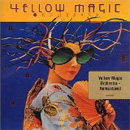 |
|
YMO is a Japanese techno band which formed in 1978 and pioneered a style of heavily sequenced electronic pieces. Lately they’ve been doing soundtrack work for (surprise, surprise) anime. Most of the songs I’ve heard from them have no lyrics or have them breathed through vocoders. It’s hypnotic and it’s different. I’ve taken this recording from a Youtube live performance. |
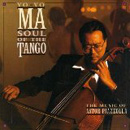 |
|
This is going to sound arty, but give it a chance. Yo-Yo Ma is the famed Chinese-American cellist (he performed for JFK when he was 7!) with a giant discography of a wide range of classical influences. Somehow I chanced upon the 1997 recording of Ma playing Argentinian tango composer Astor Piazolla, and it’s a fantastic album as Ma integrates Latin rhythms, accordions, and some cello bumps and scrapes into his versions. |
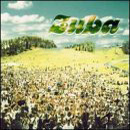 |
|
I’ve been unable to find out anything about Zuba, except that Speed Queen (1998) is from the There’s Something About Mary soundtrack. And so I won’t overanalyze it. It’s a good, hard rock riff with a sort of 60’s pop-jazz feel given by the flute solo. I try not to read too much into the "meaning" of the lyrics. |
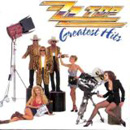 |
|
ZZ Top has two careers, one their 80’s career with the videos of curvy Texan girls in antique cars (not that this is a bad thing) and their keyboard-soaked guitar jams, and their earlier 70’s career which is bluesier and rootsier. Both periods are good, and I’ve chosen Cheap Sunglasses (1980) because it sits in the middle with its Texas-cool lyrics and grooving guitar work. |



































































































































































































































































































































































































